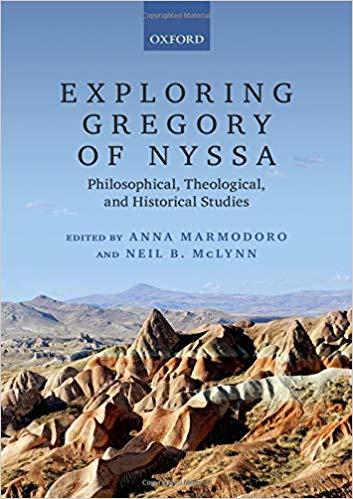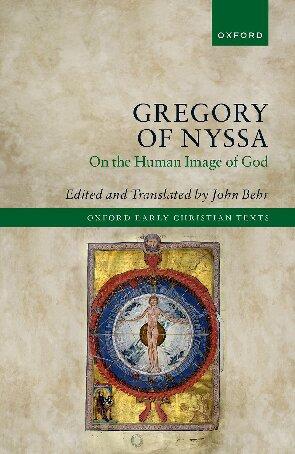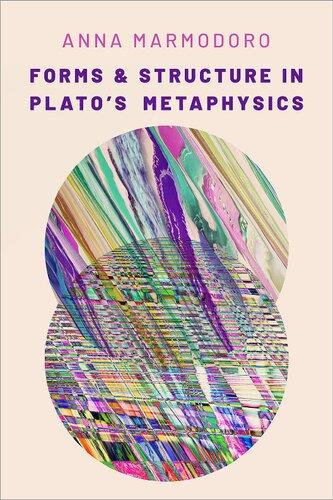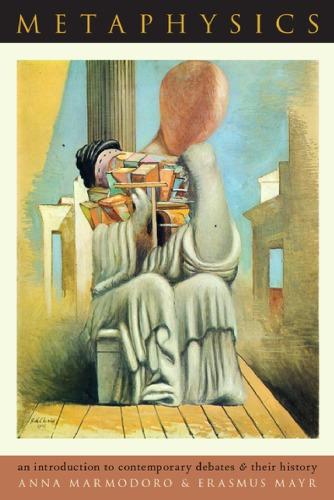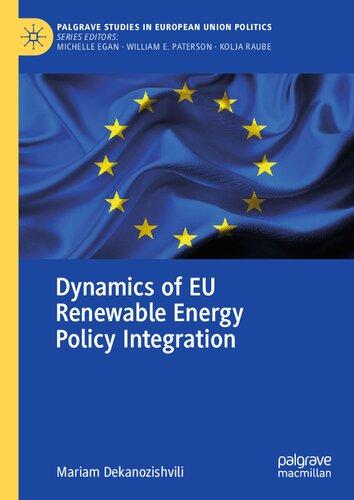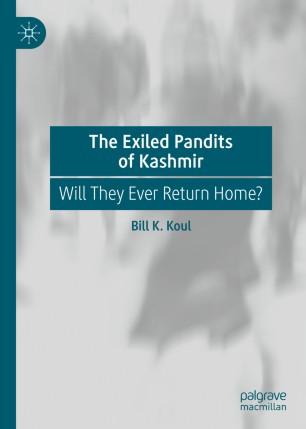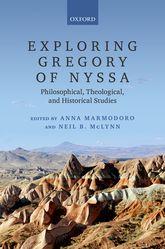Instant digital products (PDF, ePub, MOBI) ready for you
Download now and discover formats that fit your needs...
Gregory of Nyssa: On the Human Image of God 1st Edition St. Gregory Of Nyssa
https://ebookmass.com/product/gregory-of-nyssa-on-the-human-image-ofgod-1st-edition-st-gregory-of-nyssa/ ebookmass.com
Forms and Structure in Plato's Metaphysics Anna Marmodoro
https://ebookmass.com/product/forms-and-structure-in-platosmetaphysics-anna-marmodoro/
ebookmass.com
Metaphysics: An Introduction to Contemporary Debates and Their History Anna Marmodoro
https://ebookmass.com/product/metaphysics-an-introduction-tocontemporary-debates-and-their-history-anna-marmodoro/ ebookmass.com
Marketing. 8th Edition Dhruv Grewal
https://ebookmass.com/product/marketing-8th-edition-dhruv-grewal/
ebookmass.com
Selling Through Tough Times: Grow Your Profits and Mental Resilience Through any Downturn 1st Edition Reilly Paul
https://ebookmass.com/product/selling-through-tough-times-grow-yourprofits-and-mental-resilience-through-any-downturn-1st-edition-reillypaul/
ebookmass.com
Dynamics of EU Renewable Energy Policy Integration Mariam Dekanozishvili
https://ebookmass.com/product/dynamics-of-eu-renewable-energy-policyintegration-mariam-dekanozishvili/
ebookmass.com
Managing Security Threats along the EU’s Eastern Flanks 1st ed. 2020 Edition Rick Fawn
https://ebookmass.com/product/managing-security-threats-along-the-euseastern-flanks-1st-ed-2020-edition-rick-fawn/
ebookmass.com
Management: Leading & Collaborating in the Competitive World 15th Edition Thomas Bateman
https://ebookmass.com/product/management-leading-collaborating-in-thecompetitive-world-15th-edition-thomas-bateman/
ebookmass.com
That Sinking Feeling - Midlife's A Beach Series: Paranormal Women's Fiction - Book Four M L Briers
https://ebookmass.com/product/that-sinking-feeling-midlifes-a-beachseries-paranormal-womens-fiction-book-four-m-l-briers/
ebookmass.com
The Exiled Pandits of Kashmir: Will They Ever Return Home?
1st ed. Edition Bill K. Koul
https://ebookmass.com/product/the-exiled-pandits-of-kashmir-will-theyever-return-home-1st-ed-edition-bill-k-koul/
ebookmass.com
University Press Scholarship Online
Oxford Scholarship Online
Exploring Gregory of Nyssa: Philosophical, Theological, and Historical Studies
Anna Marmodoro and Neil B. McLynn
Print publication date: 2018
Print ISBN-13: 9780198826422
Published to Oxford Scholarship Online: November 2018 DOI: 10.1093/oso/9780198826422.001.0001
Title Pages
Anna Marmodoro, Neil B. McLynn
(p.i) Exploring Gregory of Nyssa (p.ii)
(p.iii) Exploring Gregory of Nyssa
(p.iv) Copyright Page
Great Clarendon Street, Oxford, OX2 6DP, United Kingdom
Oxford University Press is a department of the University of Oxford. It furthers the University’s objective of excellence in research, scholarship, and education by publishing worldwide. Oxford is a registered trade mark of Oxford University Press in the UK and in certain other countries © Oxford University Press 2018
The moral rights of the authors have been asserted First Edition published in 2018
Page 1 of 2
PRINTED FROM OXFORD SCHOLARSHIP ONLINE (www.oxfordscholarship.com). (c) Copyright Oxford University Press, 2019. All Rights Reserved. Under the terms of the licence agreement, an individual user may print out a PDF of a single chapter of a monograph in OSO for personal use (for details see www.oxfordscholarship.com/page/privacy-policy). Subscriber: Apollo Education Group, Inc.; date: 03 May 2019
Impression: 1
All rights reserved. No part of this publication may be reproduced, stored in a retrieval system, or transmitted, in any form or by any means, without the prior permission in writing of Oxford University Press, or as expressly permitted by law, by licence or under terms agreed with the appropriate reprographics rights organization. Enquiries concerning reproduction outside the scope of the above should be sent to the Rights Department, Oxford University Press, at the address above
You must not circulate this work in any other form and you must impose this same condition on any acquirer
Published in the United States of America by Oxford University Press 198 Madison Avenue, New York, NY 10016, United States of America
British Library Cataloguing in Publication Data Data available
Library of Congress Control Number: 2018950704
ISBN 978–0–19–882642–2
Printed and bound by CPI Group (UK) Ltd, Croydon, CR0 4YY
Links to third party websites are provided by Oxford in good faith and for information only. Oxford disclaims any responsibility for the materials contained in any third party website referenced in this work.
Access brought to you by:
Page 2 of 2
PRINTED FROM OXFORD SCHOLARSHIP ONLINE (www.oxfordscholarship.com). (c) Copyright Oxford University Press, 2019. All Rights Reserved. Under the terms of the licence agreement, an individual user may print out a PDF of a single chapter of a monograph in OSO for personal use (for details see www.oxfordscholarship.com/page/privacy-policy). Subscriber: Apollo Education Group, Inc.; date: 03 May 2019
ExploringGregoryofNyssa:Philosophical,Theological,andHistoricalStudies
AnnaMarmodoroandNeilB.McLynn
Printpublicationdate:2018
PrintISBN-13:9780198826422
PublishedtoOxfordScholarshipOnline:November2018
DOI:10.1093/oso/9780198826422.001.0001
Introduction
AnnaMarmodoro
NeilB.McLynn
DOI:10.1093/oso/9780198826422.003.0001
AbstractandKeywords
Thisintroductionmotivatesthemulti-disciplinaryapproachthebookfollowsinexploringGregoryofNyssa’sthoughtand historicalcontext;andprovidesanoverviewofthechapters.
Keywords: GregoryofNyssa,fourthcentury,Cappadociantheology,Aristotelianism,Platonism
Thisbookprojectbeganfromalunchtimeconversationbetweenthetwoeditors,ahistorianandaphilosopher,whereonewas puzzlingovertheremarkableriseofGregoryofNyssainthe380sfromprovinicialobscuritytoaseriesofimperial commissionsatConstantinople,andtheotherwrestlingwithhersurpriseatdiscoveringunexpectedcreativityinGregory’s metaphysics.Thefirstthingthatstruckusaswetalkedwashowlittlewehadtosaytoeachother.Gregory’spubliccareer simplydoesnotintersect,inthewrittenrecordatleast,withhisintellectualdevelopment.Histhinkingcannotbetracedto specifichistoriccrucibles,ascanbedonewithAugustineorwithhistwoCappadociancontemporaries,BasilandGregoryof Nazianzus.Althoughasmuchofhisoutputasanyoftheirsiscontroversial(and,indeed,hewritesagainstthesameopponents ashisfellow-Cappadocians),withGregorythereismuchlesssenseofanyparticularopponents,andmuchlesssenseofdanger orpressure.
Butstillmorestrikingwastheparallelismthatemergedbetweenourexperienceswiththescholarship,onGregorythebishop ontheonehandandGregorythemetaphysicianontheother.Theparableinthe Udana,oftheblindmenandtheelephant, cameinescapablytomind.Itisnotmerelythathistorians,clusteredattheirendofthebeast,arehandlingquitedifferent materialfromthephilosopherswhowrestlewiththegreatmassatthecentre.Stillmore,thosehistoriansdealingwiththetusks findintheirsubjectaplough,whilethosetakingtheircuefromthetrunkidentifyitinsteadasaploughshare(thediametrically oppositepositionstakenonGregory’smarriagemightusefullybeconsideredfromthisperspective).Thoseintellectual historianswhostartfromthefoot,meanwhile,findthereapillar,andemphasizethePlatonicfoundationsofwhattheyread, whilethosewhopuzzleoverthebodyfindinsteadagranary,filledfromhome-grownresources.Theologicalquestions,too, canbeincorporatednicelyintotheparable:theelephant’sheadyieldsathoroughlyOrigenistpot,whiletheearsuggests insteadawinnowing-basketthroughwhichOrigeniscarefullyfiltered.
(p.2) Insofarasitwasdesignedtoillustratethepettydisputatiousnessofblinkeredscholars,theelephantparableisutterly inapplicabletodescribethecurrentstateofplayconcerningthestudyofGregoryofNyssa.TheregularInternationalColloquia onGregoryofNyssa,nowintheirfourteenthiteration,providefamouslyinclusiveopportunitiesfortheexchangeofideas,and
thepublishedproceedingsrepresentmodelsofcollaborativeresearch.Nevertheless,itseemedtousthattherewassomething intrinsictotheGregorianmaterialthatyieldedthedistinctivepatternswhichwehadseparatelyidentified.Mightitbe,perhaps, thattheveryabsenceofdemonstrableconflictinGregory’sauthorialinitiatives,thecomfortablepositionofstrengthfrom whichthegreatmajorityofhiswritingswereproduced(itiseasilyforgottenthathewasthefirstmajorGreekNiceneauthorto writewiththeknowledgethattheimperialregimestoodbehindhim),helpslendthemtheireasycapaciousness,andcreates spaceformodernscholarstodeveloptheirhypothesesmoreexpansivelythanisusuallythecase?ThehistoricalEunomius certainlyseemstoimposemorerigorousconstraintsoverBasil’sandGregoryNazianzen’sTrinitarianwritingsthanon Gregory’s.Suchquestionsinspiredtheseminarseriesfromwhichthiscollectionisderived.
Wehavedeliberatelyavoidedanyattemptatsynthesis.Instead,wehavetriedtopresentinasinglevolumeasetoffresh studiesonGregoryfromacrossthedisciplinesofhistory,theology,andphilosophy,andhavemadeapointofleavingthe differencesbetweenthecontributorsineachofthesefieldsunresolved.Webelievethatthereismuchfruitfulworktobedone exploringthesevariousdifferences,andtracingthembacktotheaspectsofGregory’swritingthatgeneratedthem.
Intheopeningchapter,JohnMcGuckinacceptsthechallengeofpresentingalifeofGregory,andsituateshiminbothhis historicalandintellectualcontexts.McGuckinoutlinesthemainphilosophicalandreligiouscontroversiesoftheera,and particularlyGregory’secclesiasticalinvolvementintheNeo-Niceneapologeticalmovementassociatedwiththeleadershipof hisbrotherBasilofCaesarea,whichGregoryinheritedinCappadocia,withimperialapproval,after380.Further,McGuckin providesareviewofhowGregoryandhisworkhavebeenreceivedinlaterEuropeanandAmericanscholarship.Indoingso hebothprovidesanintroductiontothemorespecificdebatesconcerningGregory’sthoughtandintellectualpersonalitythatare containedintherestofthevolume,andatthesametimesetsoutapositionconcerningGregory’scontemporarystanding againstwhichChapters2and3canusefullyberead.
NeilB.McLynndiscussestherelationshipbetweenGregoryofNyssaandGregoryofNazianzus.Thishappenstobeoneofthe better-attestedrelationshipsbetweenmajorecclesiasticalauthors:eightlettersfromGregoryofNazianzustohisnamesake, coveringaperiodofsometwodecades,provideourprincipalevidence,supplementedbyanorationwhichheaddressedto him,andsomeindicationsoftheiractivitiesinCappadociaduringthe350s (p.3) andatthecouncilofConstantinoplein381. Yetthisevidencehasreceivedverylittlecriticalattention.WhilethetensionsbetweeneachoftheGregoriesandBasilof Caesarea,overbearingfriendtooneandoverbearingbrothertotheother,haveovershadowedtheirownmutualinteractions, therichsurvivingevidenceconcerningtheseinteractionssuggests—McLynnargues—amuchmorecomplex,boisterous,and dynamicrelationshipbetweenthemthanthestandardviewaccordingtowhichtheystoodshouldertoshoulderthroughouttheir careers,unitedbysharedasceticexperienceandculturalinterests,andbysharedexposuretoBasil’sdomineeringpersonality
WithSusannaElm’schapterweturntoGregory’slatertheologicalwritings,andthelighttheyshedupontheintellectualand historicalcontextswithinwhichGregoryoperated.Elmfocusesonthe Life of Moses,akeyconceptualizationoftheperfect Christianlife.Theexistingscholarlyliteratureonthe Life of Moses focusesespeciallyontheextensiveallegoricalreadingof Moses’lifeinthesecondpartofthework,whichfeaturesprominentlyindiscussionsoflateantiqueconstructionsofthe priesthood,and,moregenerally,ofmasculinity,especiallybyscholarssuchasVirginiaBurrusandAndreaSterk.While buildingontheseexistingstudies,Elmfocusesonthefirstpartofthetext,namelyGregory’sparaphraseofthe historia of MosesandtheExodus.Sheshowshowmuchthefirstpartofthistexthastooffertoourunderstandingofthetimes,by examiningthewaysGregorysuggestslateantiqueChristianmalesingeneralshouldpresentthemselves,intermsoftheir appearanceandclothing.ThispresentationofGregoryasaprescriptivefashionguruhasimplications(muchlikeMcLynn’s verydifferentstudy)forourassessmentofGregory’sstyleofleadership.
TherefollowsagroupofchaptersexaminingtherelationshipbetweenGregoryandOrigen.MarkEdwardsdelvesintoanother latetheologicalworkofGregory’s:his Commentary on the Song of Songs,thecentreofwhichisthefigureofChrist,the Bridegroom.Edwardsarguesagainstrecentinterpretationsofthistextasa‘rediscovery’ofthebodyasanintegralpartofthe person,inaccordancewithPaulineteachingandincontrasttothe(neo-Platonic)philosophywhichdisparagesthebodyasa temporaryvehicleofthesoul,showingsuchviewstodependonselectivequotationofisolatedpassagesinGregoryseldom accompaniedevenbyadesultorystudyofOrigen.AcloserexaminationofbothGregory’sandOrigen’stextssuggeststhat GregoryisthemorePlatonistofthetwo,atleastifthistermistakentoconnoteanindifferencetohistoryandalower valuationofthewrittentextasamediumofinstruction.
Gregory’sindebtednesstoOrigenisfurtherstudiedbyChristopherBeeley.Hearguesthatevenmoretellingoftheconnections withOrigenareGregory’slateexegesisandthedogmaticworksofthemiddleperiodofhiscareer(aboveallthe Contra
Eunomium and Antirrheticus against Apollinarius),aswellashisearlyworksontheTrinity.BeeleyshowsthatGregory’s doctrineandexegeticalmethodwerefirmlyestablishedbythetimeofthedogmatic (p.4) controversieswiththeEunomians andApollinarians,yearsbeforeGregoryturnedtothegreatstoriesoftheOldTestament.Beeleyconcludesthatwhile Gregory’sdebttoOrigenisconsiderable,hisdoctrineandexegesisgenerallyfollowtheirownrationale,whichbothresembles andyetdiffersinimportantwaysfromthatofhismasterOrigen.
IlariaRamelliandJohannesZachhuberinvestigateGregory’sconceptionofthesoul,aspresentedin On the Soul and Resurrection,andinterestinglyofferdiverginginterpretations.RamelliischieflyinterestedinsituatingGregory’streatmentof thesoulwithinthephilosophicaltraditionoftreatises On the Soul andinconversationwithOrigen’scomplexpsychology WhileOrigenneverwroteawork On the Soul (andhadprecisereasonsfornotdoingso),hedidwriteone On the Resurrection HisoldercontemporaryTertulliancomposedbothawork On the Soul andone On the Resurrection. Gregoryoptedfora synthesis,inoneandthesamework,ofthephilosophicalgenre On the Soul withtheChristian(forhim,Origenian)genre On the Resurrection,withintheframeworkofaremakeofaPlatonicdialogue.RamelliinvestigatesGregory’sviewsonthesoul againstthebackdropofPlato’stheories,focusinginparticularonthesoul’sresurrection(,orrestoration)andontheroleofthe soulinGregory’ssocalled‘theologyoffreedom’.ThechapterconcludeswithanexplorationoftheinfluenceofGregory’s viewsonEvagrius’theoriesoftheresurrectionandofthesubsumptionofbodyintosoulandsoulinto nous
Zachhuber’schaptertoooffersanaccountofGregory’sunderstandingofthehumansoul,leadinghowevertoopposite conclusionsfromRamelli’s.ZachhuberarguesthattheinterpretationaccordingtowhichGregory’sview On the Soul and Resurrection isessentiallyPlatonicmustberejected.HeholdsthatwhiletherearePlatonicelementswithinGregory’sdoctrine ofthesoul,hisattentiontoChristianprinciples,andespeciallyhisrejectionofthesoul’spre-existenceaswellashis commitmenttothedoctrineoftheresurrectionofthedead,leadGregorytoaviewthatmakesthesoulthepower(dynamis)of itsbodyandthusdifferentfromthewayPlatoconceivedofit.
MorwennaLudlowexploresthequestionoftheextenttowhichGregory’sconceptionofspiritualformationilluminateshis notionofthebody–soulrelationship.Ontheonehand,Gregoryusesthetropeoftheflightofthesoulfromthematerial (includingthematerialbody);ontheotherhand,hisspiritualwritingsshowthatheoftenthinksofspiritualpracticeasbeing inherentlyembodied.Thistensionhasreceivedacertainamountofcriticalattention,butLudlowfocusesontwoareasin particularwhichhavehithertoescapedanalysis:first,Gregory’suseofthemotifsfromthevisualarts(sculptingorpaintingthe self);secondly,hisasceticwritings De Professione Christiana, De Perfectione,and De Instituto Christiano.Sheconcentrates notonGregory’sconceptofthespiritualgoal,butratheronthesubject’sprogresstowardsthatgoal:theprocessofspiritual formation.Consequently,Ludlowfocuseslessonexceptional‘moments’ofspiritualexperience/prayer,whichseem,in Gregory’s(p.5) thought,tobeprolepticindicatorsofaneschatologicalgoal,andmoreoneverydayspiritualpractice,as Gregoryconceivedofit.
InachapterwhichoffersanumberofpointsofcontactwithLudlow’s,SophieCartwrightexplorestherelationshipbetween vulnerabilityandself-directioninGregory’santhropology.Inboth On the Soul and the Resurrection and On the Making of Humankind,Gregoryenvisageshumanvulnerabilityasallowingustoascendfurtherthanweotherwisewouldhavedone,and togainastrengthandpowerwhichweotherwisewouldnothavehad.Thiscorrespondstoanemphasisonself-directioninhis politicalthought:wearecreatedself-directing,soslaveryisunnatural.Theseideasinitiallyimplythatvulnerabilityis ultimatelytobejettisonedinfavourofstrength.However,Gregory’sthoughtismorecomplex,Cartwrightargues.Slaverycan bejettisonedinthewrongway,andhumanascentandrealizationofself-directioncanoccurinthewrongway;forslavery representsnotonlytheslave’svulnerability,butthemaster’simproperpower.CartwrightconcludesthatforGregory vulnerabilityandself-directionneedtobemutuallyinforming—heldinafruitfultension.
Chapters10and11,authoredbyAndrewRadde-GallwitzandAnnaMarmodororespectively,re-examineGregory’streatise To Ablabius—On Not Saying ‘Three Gods’,whichisoneofthemostwidelycitedworksofpatristicTrinitariantheology.RaddeGallwitzarguesthatGregory’sprincipalclaimintheworkisthatthe(unorthodox)ideathatthethreedivinepersonsarethree godsisrebuttedbytheunityofactivity—asopposedtounityofnature—ofthethreepersons.Radde-Gallwitzmaintainsthat Gregoryisconcernedinthetreatisewiththesemanticsoftheterm‘deity’(theotēs),andthatwecanilluminatehis etymologicalexpositionofthistermasanameofactivitybytakingintoaccounthithertooverlookedparallelsbetweenthis workandGregory’ssecondbookof Against Eunomius.Radde-GallwitzconcludesthatGregoryunderstandstheunityofdivine actionbyanalogywiththeunityofanyintentionalaction—anaccountofTrinitarianunitythathecallsthe‘intentionalaction’ model.
Marmodoroontheotherhandarguesforadifferentinterpretation:sheholdsthatGregoryoffersametaphysicalaccountofthe Trinity,whichemploysaninnovativedistinctionbetween stuffs (e.g.gold),whichcannotbecounted,and individuals (e.g. rings),whichcanbe.Gregoryidentifiesthenatureofanynaturalkindwiththetotalityofitsinstances:thenatureofmanisthe totalityofmen;thenatureofgoldisthetotalityofgoldintheworld.ForGregory,thetotalityismore‘real’thanthe individualsintowhichitisarticulated,whicharemerelythewayinwhichthekindispresentintheworld.Gregoryidentifies Godasthetotalquantityofdivinitythereis,whichisthus one,andreal.ThePersonsoftheTrinityintowhichGodis articulatedarethewaysinwhichGodisintheworldandcanbecomprehendedbyus.Thus,Marmodoroargues,Gregory solvestheproblemoftheTrinitybytreatingitasaspecialcaseofthephilosophicalproblemoftheOneandManywhichhis philosophicalpredecessorstoo,PlatoandAristotle,hadaddressedindifferentformsintheirmetaphysics.
(p.6) Inkeepingtheprinciplesdiscussedearlier,wehavedeliberatelyrefrainedfromaddingaconclusiontothevolume.The collectionisconceivedasaninvitationtoexplore,ratherthananattemptatsynthesis.Itistheeditors’sharedbelief(nomatter howvehementlywemighturgeourownindividualarguments)thatallthequestionsraisedinthisvolumeremaingenuinely openones.Ourpurposeisthereforetoencouragethoseusingthecollectiontoreadaswidelyacrossitaspossible,sothat historians(forexample)aretacklingMarmodoroandRadde-Gallwitz,andphilosophersMcLynnandElm.WithGregoryof Nyssaevenmorethanwithmostauthors,themoregenuinelyopen-eyedtheexploration,themorefruitfulitislikelytobe.
PRINTEDFROMOXFORDSCHOLARSHIPONLINE(www.oxfordscholarship.com).(c)CopyrightOxfordUniversityPress,2019.AllRightsReserved.Underthetermsofthelicenceagreemen singlechapterofamonographinOSOforpersonaluse(fordetailssee www.oxfordscholarship.com/page/privacy-policy).Subscriber:ApolloEducationGroup,Inc.;date:03May2019
Accessbroughttoyouby:
ExploringGregoryofNyssa:Philosophical,Theological,andHistoricalStudies
AnnaMarmodoroandNeilB.McLynn
Printpublicationdate:2018
PrintISBN-13:9780198826422
PublishedtoOxfordScholarshipOnline:November2018
DOI:10.1093/oso/9780198826422.001.0001
StGregoryofNyssa
Bishop,Philosopher,Exegete,Theologian
JohnAnthonyMcGuckin
DOI:10.1093/oso/9780198826422.003.0002
AbstractandKeywords
Chapter1givesBiographicalbackgroundandstudiesthehistoricalcontext(s)ofGregoryofNyssaandhisclosefamily members,situatingthemasaristocraticandlong-establishedChristianleadersoftheCappadocianarea.Itoffersalongwiththe courseofGregory’s Vita ageneraloutlineofthemainphilosophicalandreligiouscontroversiesofhisera,particularlyhis ecclesiasticalinvolvementintheNeo-NiceneapologeticalmovementassociatedwiththeleadershipofhisbrotherBasil(of Caesarea),whichhehimselfinheritedinCappadocia,withimperialapproval,after380.Itconcludeswithareviewof Gregory’ssignificanceasauthor:intermsofhisstyleasawriter,hisworkasanexegete,hisbodyofspiritualteaching,and lastly,themannerinwhichhisreputationwaxedandwanedfromantiquitytothepresent.
Keywords: Nyssenfamily,biography,Origen,Neo-Niceneschool,darkness,exegesis,Basil,GregoryofNazianzus,Eunomianism
Sketchofa Vita
Thesaintlyphilosopher,rhetorician,theologian,andbishopGregory(c.335–395),whomwecommemorateandexegeteinthis volume,deriveshistitle‘OfNyssa’or‘TheNyssen’fromthesmall-townepiscopalsee(nowNevsehirinmodernTurkey)that hisbrotherBasil,holderofthearchdiocesanseeofCappadocianCaesarea,insistedthathetakeuptooffsetadwindling numberofhisCaesareansuffragans.Basilwantedtoinsertanumberofclosefriendsandalliesintoobscureandnewlycreated seestocounteractadown-sizingofhisadministrationthatwasfoistedonhim,incontroversialtimes,byanimperiallyordered redrawingofchurchboundaries.ItwasthisforcedthrustingofGregoryintothepoliticallimelightinhismid-thirtiesthat broughtthisrefinedandwealthyintellectualintotheroughstreamofhistory,notalwaystohisheart’scontent;butitensured hislastingreputationamongtheChristiansasaphilosopher-theologian,oneoftheimportant‘FathersoftheChurch’.
Hispersonalname, Gregorios,wasacommononeamongCappadocianChristiansfromearlytimesandderivesfroma referencetotheangelswhowereseenas‘watchers’overthebelievers.ThefamilyalreadyhadarelativenamedGregorywho servedasabishopinCappadocia.1 Itwasalsochosenbyhismother,Emmelia,tocommemoratetherenownedthird-century evangelistoftheirancestralCappadocianchurches,GregoryThaumaturgos,whowasa(p.8) majorpatronsaintoftheir circle.2 ThatmissionarytheologianwasreputedtohavebeenapersonalanddevoteddiscipleofOrigenwhenthelatterwas teachingatCaesarea.3 GregoryNyssen’slaterdedicationtothememoryofOrigenwouldbeanotablefactorofhispersonal intellectualstyle.Inthelongerterm,itwashisbrotherBasil’sgreatfameintheByzantineworld,reachingoutalsoto Armenian,Ethiopian,Coptic,Latin,andSlavicChristianities,thatkeptGregory’sreputationaliveandveneratedthroughthe
courseofhistory,thoughhisworkswerechieflyread,afterhisownlifetime,inarathernarrowgauge:the Great Catechetical Discourse thathehadpreparedforneophytestothefaithwasconsistentlypopular,andsotootheseveralasceticaltreatiseshe wrote,whichwerefavouriteswithlatermonastics.Butthefifth-andsixth-centurycondemnationsthatfellupontheworksof Origencastalatershadowoverhisownrepute,onethatthelightofBasil’sreputationstoppedfromeverbecominganovertly voicedcensure.Gregory’sowndeaconEvagrios(ofPontus)didnothavesuchasaintlybrotherandfellmoreeasilyunderthe posthumousOrigeniancondemnations;formallynamedandcensuredintheanathemataoftheFifthOecumenicalCouncilof 553.Evenso,theOecumenicalCouncilof787gaveGregory,inhisownright,thedesignation‘FatherofFathers’(pater pateron).Butletustakethestoryfromthebeginning.
Gregorywasbornintoahigh-rankingPonticfamilythathadrootsoveratleastthreegenerationsasChristians4 andwhich,in thefirstquarterofthefourthcentury,heldlandandpropertyatNeo-Caesarea,themetropolisofPontus,5 whichwashis father’sancestraltown,butwasalsobasedfurthersouthatCaesarea,theCappadocianprovincialcapital.Thematernalsideof thefamilywasalsosignificantlyrich.6 Inhis Life of Macrina Gregorytellsusthathismother,atthetimeofherwidowhood, waspayingpropertytaxesinthreeseparateprovinces.7 TheircountryestatenearNeo-CaesareawascalledAnnisa,andlayby thebanksoftheriverIrisnearitsconfluencewiththeriverLycos.8 (p.9) Theirmaternalgrandfather9 hadbeen‘executedby orderoftheEmperor’,10 thoughthefamilydoesnotseemtoclaimhimasamartyr.InthepersecutionofMaximinDaia(306–13)thepaternalsideofthefamilyhadcertainlybeentargetedasChristians,andtheirpaternalgrandfatherhadsuffered confiscationofgoods,thoughnotsodrasticallyastoimpoverishthem,sinceGregoryNazianzentellshowtheyhadto‘retreat totheforestsofPontus’,whichisprobablynomorethan‘rhetor-speak’forretiringtotheircountryestate.11 Fromthistimeof resistingthepersecutors,theirgrandmotherMacrinatheElderemergedasaseniorfigureinthelocalchurch,claiming somethingofthestatusofaconfessor12 Thefamilyclearlybouncedbackfromsetbackstobothsidesoftheclan,possibly learningherethevalueofhavingpropertyinmorethanonedistrictandsonotbeingunderthepowerofanysingleimperial governor.TheabilitytowithdrawtothePonticcountryside,avoidingthehigherprofileofthecities(andalsoclaimingthetax benefitsofdeclaringtheirestates‘asceticalChristianretreats’)wasatacticthefamilyconsciouslyapplied.13
CappadocianCaesareawasaprovincialcapitalofsomesignificance;aguardianofthefrontierprovincessetonthehighroad eastoutofConstantinople;acivilbasecentraltotheimportantbusinessofthesupplyofhorsesforthearmy.Inecclesiastical terms,itwasalargearchdiocesanchurchthathadclosetiestoArmenia,butwasalsocloselyrelatedtotheaffairsofthegreat seeofAntiochthathadatthisperiod(likeAlexandria)becomeastormcentreoftheNicene–Ariancontroversy.Basilwasa keyfigureinthisnexusofpolitics.BothGregoryofNyssaandGregoryofNazianzuswouldalsobecalledupon(especially afterthedeathofValensin378)bytheNiceneleadersinexile,MeletiosofAntiochandPaulofSamosata,torallytheNicene causeintheEastafterBasil’sdeath,andboththenrespondedwithalacritytothesummons.
Gregorywasbornsometimebetween335and340.14 Hehasusuallybeenclassedasoneoftheyoungeroftenchildreninthe family,fiveboysandfive(p.10) girls;thoughwehavenoinformationaboutmostofthem.15 Maraval,however,hasmore recentlyproposedthepropernumbertobenine.16 HisfatherwasBasiltheElder,aprofessingrhetorician,involvedinlocal politicsatNeo-Caesarea17 andpossiblyCaesarea.Thelatterdiedrelativelyyoungbetween341and345.Themother Emmelia’s18 careofthehouseholdwasatfirstassistedbythechildren’sgrandmotherMacrinatheElder(d. c.340)who exercisedanimportantinfluenceonthem,stressingtheirsignificanceasChristianleadersoftheregion.Theeldestsonofthe familywasalsonamedBasil(born329),latertobedesignated‘BasiltheGreat’byhisfellowrhetoricalstudentGregoryof Nazianzus.MacrinatheYounger(c.327–379)wastheeldestsisterwho,inhermother’swidowhood,notonlyassumedthe directionofthehousehold19 butmovedthelocusofthefamilybasetothePonticcountrysidewhere,undertheinfluenceofher mentor,theasceticalbishop-philosopherEustathiusofSebaste,20 sheheadedanextendedasceticalcommunityonthefamily properties21 andtaughttheyoungerchildren,includingGregory,whoheldherinthehighestesteemasanintellectual.22 This wasinmarkedcontrasttohiseldestbrother,Basil,whoeffectivelyconsignedhertoa damnatio memoriae, 23 consequenton hisownseverefallingoutwithEustathiusoverdoctrinalterms—eventhoughEustathiushadbeenhisownmentorinducting himintotheasceticallifeandthatofclericalchurchpoliticsasarhetor-theologian(p.11) fightingagainsttheArianpartyof AetiosandEunomios.GregorycreditsBasil24 asoneofthosewhoalsoeducatedhiminrhetoric.Weoughtalsotoimagine thatGregory’sepiscopaluncleGregoryalsohadahandinhistraining,25 as(mostlikely)didGregoryNazianzen,attheperiod around355whenheandBasilbothreturnedfromstudiesinAthens,andbothfunctioned(atleastforawhile)asrhetoriciansin CaesareaandNazianzus.26
GregorywasthethirdofthebrothersafterBasilandNektarios.Nektariosbecameapractisingrhetorinhisfather’stradition, butdiedyoung,afterahuntingaccidentinwhichhedrownedinhisnets.The encomia writtenofhimbyGregoryNazianzen
andGregoryNyssadepicthimasdyinginthewildernessasanasceticanchorite:butthisisverylikelyadeliberatelyidealized formofdepictinglifeonaChristiancountryestateasreligious hesychia (forpurposesofanylocalcurialinterest)onanestate nowclassedasa‘monastery’.27 Nektarioscertainlyconsideredhimselfarhetorician,evenifhewasenjoyinglifeonhis countryestatesatthetimehediedinthecompanyofhisslave,andtoomanycommentatorshavefollowedtherhetorictoo woodenlyinassumingthatalltheleadersofthisCappadocianfamilybecamefull-timeascetics.AsweknowfromBasil’s ecclesiasticalcareer,hetooappliedhisrhetoricalskillstogreatresultinecclesiasticalaffairs.UnlikeBasil,whospentyearsat theschoolsofrhetoric,culminatinginalongstayatAthenswithGregoryNazianzen,GregoryNyssenseemsnottohave travelledfarafieldinhisyouth,buttohavebeeneducatedinthisdenselyconnectedlocalnetworkofChristianintellectuals comprisingthefamily’slargerkinsysteminCappadocia.Itispossiblythis‘local’aspectofhiseducationthatgavehim,along withthebenefitofwell-endowedlibrariesinthecircleoftherhetoricianstowhichhebelonged,averygreatrangeofcritical readinginhiseducation,inpreferencetoastressonperformance,whichoftenencouragedsuperficialityofcitationandin thinkinginmanySecondSophisticwriters.ThismayaccountforthecharacterofGregory’srhetoricthatleanstowards transcendentalphilosophy,ratherthanlegalorclassicalconstructs.Ithasmadehimoneofthemostimportantand intellectuallyelevatedofthelargerschoolofSecondSophisticrhetoricians.28
(p.12) GregoryhimselfseemstohaveregardedMacrina’sandBasil’sdedicationtoasceticalformsofChristianity,intheyears after355,withinitialscepticismandimpatience.Butlaterthinkingbacktothistime,fromthevantagepointofabishopof somestanding,healsotellsthestory29 howadreamcausedhis‘realconversion’totheChristianphilosophy(bywhichhe meansacceptingbaptismandthecanonicaldutiesimposedonabeliever)whichhedescribes(intermsoftropesweneednot taketooseriously)asaturningawayfromthepathofarhetorician,tothatoftheChurch.Hismotherhadcalledforhimtobe presentforthecelebrationofthefeastoftheFortyMartyrsinPontus,aroundtheyear360,and,tiredafteralongjourneyfrom Caesareawherehewascaughtupinmuchbusiness,hesays,hehadbeenratherunwillingtoattendallofthelengthyvigil ceremonies.Afterattendingserviceforashortwhile,hesneakedawaytosleepinthegarden,andherecountshowhehada dreaminwhichthemartyrscametohimandbeathimwithrodsbecauseofthewayhehaddishonouredthem.Afterhewoke heresolvedtoacceptbaptismandassumedtheclericalofficeof Anagnostes,orReaderoftheScriptures.30
Theaccountmirrors,toacertainextent,the‘dreamepisode’inwhichGregoryNazianzenseesavisionoftwoantiquefemale figures(ChastityandSobriety).31 Boththinkersrepresentanepistemologywheredivinerevelationscompletethepurified strivingsofthehumanintellect:‘faiththatgivesfullnesstoreasoning’astheNazianzenputit.TheNyssen’snewclerical statuswouldhaveaffordedhimexemptionfrommanyofficialcivicdutiesandtaxes,butreturningtoCaesareahewantedto resumethecareerpathofhisfatherasapoliticalrhetorician,andforhisabandonmentofaChristian,thatisclerical,focushe washeavilycriticizedbybothBasilandGregoryNazianzen.32 Thelattermaythusbepresumedtohavehadsomehandin Gregory’sformativeeducation,33 andindeedGregoryofNyssaconsiderablyaidedhisnamesake’sepiscopalcareerat Constantinople,laterin380.TheyoungerGregoryseemstohavehadarapiddisillusionmentinhisrhetoricalteachingcareer, finding(p.13) thathisclassesweremoreinterestedinmakingagoodmilitarycareerthanindiscoveringanyliterary refinement,ashecomplainedinalaterlettertotherhetoricianLibanios.34 Between361and363Julian’sefforts35 tohinderthe careersofChristianrhetorsservedtogivetheCappadociancircleonlygristforthemillofresistance;thoughitmayalsohave signalledthewisdomofretreat.
Itispossiblethatatthisperiod,around365,GregorymarriedTheosebia36 thoughothers37 haveregardedherasoneofthe sistersofthefamily,avirginalasceticdeaconess.ThemoreobviousreadingoftheambivalentevidenceisthatGregorywas marriedtoTheosebia.Formanycenturieschurchhistorianspreferredtothinkitalmostinconceivablethatabishopwouldbe marriedatthisera,butitcertainlywaspossible,38 thoughnotsomethingarhetorwouldnormallyhighlightinhisownwork. WeknowofTheosebiafromGregoryNazianzen’s Epigrams 164and197andfromLetter19739 wherehewritesin consolatorytermstotheyoungerGregoryafterherdeath,40 andspeaksofherbeinganidealἱέρεωςσύζυγοςusingaterm whichcanequallymeansisterorspouse—butisherepreciselyconnoting‘fellow-workerofapriest’.TheNyssenhimself nevermentionsher,butthemostlikelyreadingofthetermσύζυγος referringtohispriestlyministryis,itwouldseemtome, thatshewashiswife.41 GregoryNazianzenalsocallsTheosebiathe‘childofEmmelia’.AnnaSilvashastakenthisevidence toarguerecently42 thatthe‘obvious’readingmustbe(since,admittedly,therecannotbetwoseparateTheosebiasmentionedin Gregory’sEpigramsandConsolatoryLetter)thatGregorywasindeedmarried,butthatTheosebiawasnotthewife,but Gregory’ssisterwhotookchargeofhishouseholdatNyssa,andledthecommunityofvirginsthere.ButifTheosebiamarried Gregoryshewould,ofcourse,haveimmediately‘become’Emmelia’sdaughteraswell,accordingtothekinrulesofsuch times;andthestatusofbeingGregory’swifewouldalsogiveherachurchrole(p.14) asπρεσβυτιδαorheadofthe deaconesses(thatisaσύζυγος—yokedwithapriest)whichishowGregoryNazianzenhonoursher,onhearingofherdeath.
DaniélousupposesthatCynegioswasthechildofthismarriage,theyoungmanwhomGregorywantstohaveLibanios educatelaterin380.43
Atthesametimethathewasmarried,then,Gregoryalsocomposed(asifin apologia)acelebrationofhisfamily’sascetical dedication,inthe Treatise on Virginity.ThisismainlycelebratingBasilandMacrina.Basilknewthathecouldnotpersuade Gregorytoadoptthesameasceticallifestyle.44 The‘virginity’(παρθένια)thatGregorysoearnestlydesiresthroughoutthat treatiseandlamentsthatheneverachieved(becausethemarriedlifeintheworldhasitsspecialdifficulties)hasoftenbeen takenasevidencehedidnotfindmarriedlifeveryagreeable;butagainπαρθένια hereoughtnottobeunderstoodascelibacy asmuchasthephilosophicalσωφροσύνηtowhichheaspiresandwhich,headmits,theotherasceticshaveclearly demonstratedbothbodilyandnoeticallyintheirlifestyles.45 Macrina’sinfluence,perhapsthefactthattheirfather’slibraryhad beenrelocatedhere,andmaybetheCappadocianfamineof36946 allseemtohavedrawnGregorybacktoAnnisaforsome timewhereheoccupiedhimselfinfurtherextensivestudiesoftherhetoricalclassicsandawidereviewofthephilosophical schools:butsurelyalsoatthisperiodbeginshisdeepacquaintancewiththewritingsofOrigenofAlexandria.Withthe exceptionofGregoryNazianzenheisprobablythemostwellreadofalltheChristiantheologiansofthisage.HereadPlato andshowsdependenceespeciallyonthe Phaedo, Phaedrus, Republic,and Timaeus.HecloselystudiedthemanualsofMiddle PlatonismfromPosidonius,andDaniélouhasargued47 thatheisespeciallyimpressedbyPlotinus’senseofmysticalascent, Porphyry’slogicandontology,Iamblichus’cosmology,Stoicism’sethics,andtheHellenisticscientifictreatises.Heclosely followspartsofthe opera ofPhiloJudaeus.AsaChristian,Gregorystoodforabroadchurch,aslongastheNicene fundamentalswereaccepted.Heneverfeltitnecessarytodenouncehisloveofliteratureandbooks,orapologizeforhiswide reading,asifhewereasophisticascetic.Nordidhewishtodrawecclesialallegiancesinanarrowremitasdidmanyofthose aroundhim.
In370hismotherEmmeliadied,andGregory’s Letter 19testifiestothewayMacrinaservedtoconsolethefamilyatthistime. InthesameyearBasilwonthecontestedelectiontobecometheMetropolitanBishopofCaesareaand (p.15) immediately startedtocallinthefavoursofhisfamilyandfriends.48 In372,tooffsettheimperialredrawingoftheboundariesofthe Caesareanarchiepiscopate,whichBasilsawasanattackonhisabilitytocommandallegiancestotheNicenecause(butwhich otherssawasmerelyaploytosustainhispoliticalinfluence)heappointedhisfriendGregoryofNazianzustotheseeof Sasima(whichthelatterrefusedtooccupy),andhisyoungerbrotherGregorytoanequallylittlecrossroadstownonthe diocesanborderlandsthathadneverpossessedindependentepiscopalstandingbeforehand.Nyssawas10milesoutside Caesarea.EusebiusofSamosata,possiblyurgedtoitbyacomplaintfromGregory,49 wrotetoBasilcriticizinghimforburying sogreatatalentinsounsuitablealocale.Basilrepliedthathewaspressuredtodothis,butmadethepropheticremarkthathis brotherwouldbringmorerenowntothenameofthetownthaneverthetowncouldbringhonourtohim.50 Itprovedtobethe case.
AsachurchpoliticiantheNyssenwasinmanywaysmorelikeGregoryNazianzenthanhiselderbrother.Hefeltthat reconciliationwiththosewhowereofthesamesubstantialmindwaspossible.Basilrebukedhimonseveraloccasions,forhis toleranceofthepartyofMarcellusofAncyra(the‘OldNicenes’)whomhe(andseveralothersintheregion)regardedas ‘Sabellians’;andwhenGregoryproposedtojoinapartyofreconciliationsettogotoRomein37651 toseekthereasettlement ofthedisputeovertherightfulincumbentatAntioch,Basilagainvetoedhimasbeingnaivelyover-trusting,notasuitablefoil forthewilyDamasusofRome.
InBasil’searlyyearsinoffice,theimperialcourt,althoughitwasgenerallypressingfortheHomoianAriancauseinchurch politics,feltitwasbettertoleavehimalone.ItneededsecurityinCaesareabecauseofitsclosenesstotheArmeniankingdom, andBasilwasknowntohavestandinginthatChurch.ButhisyoungerbrotherwasadifferentmatterandtheNyssenattracted attentionasaNiceneattheSynodofAncyrain372,atwhichevenhisdecisiontoattendhadannoyedBasil.52 Inthewinterof 375theirArianenemiesmoved(p.16) againstthem,anattackorchestratedbyDemosthenes,anoldenemyofBasil’sfromthe dayswhenhehadengagedinextensivespeakingengagementsagainsttheArianphilosophy,andwhonowoccupiedtheoffice ofimperialVicarofPontus.HebroughtchargesagainstGregoryonthegroundsofanirregularordinationandthefinancial mismanagementofchurchassets.Basilhadpersonallyordainedhisbrother,overrulinganylocaldisagreement,andthecharges couldbemadetostick,presuminganArianmajorityattheadjudicatingsynod.ToensurethisGregorywascalledtodefend himselfatasynodicaltrialatAncyra.AnarmedguardsenttobringhimtherebyforcewasfrustratedbyGregory’sclaimthat hehadtoseekurgenttreatmentforabronchialillnessbroughtonbytheirroughtreatmentofhim(whichwasacounter canonicalchargetheycoulduseifnecessary).Meanwhile,Basilattemptedtocallineveryinfluencehecouldtosecurethe dismissalofthecharges.HeheldasynodofhisownbishopsatCaesarea53 andalsosentlettersentreatinginterventiontothe
aristocratAbourgiosatConstantinople.54 Evenso,in376EustathiusofSebaste,nowimplacablyopposedtoBasil,55 was instrumentalinassistingDemosthenes’planforasynodtobeassembledatNyssaitself.56 Againrefusingtoappearatthis, whichwasheldunderthepresidencyofAnisiosandEkdikiosofParnassos,GregorywasdeposedfromofficeandtheEmperor ValensmayhaveissuedadecreeforGregory’sbanishmenttoSeleucia.57 Anaccountofhiscontinuingharassmentsinthis timeofexileafter376ispreservedinthelettersofencouragementGregoryNazianzensenttoanswerhiscomplaintsaboutthe conditionsofexile.58 AfterthesuddendeathofValensin378thetideturnedfortheNicenepartyandunderGratianGregory wasreinstitutedasorthodoxBishopofNyssa.Histhirdepistle59 recountshistriumphantreceptionbackamonghispeople.
By378,then,healreadyenjoyedareputationasaNiceneconfessor.On1January379,hisbrotherBasildied,60 relatively young,likehisfather,andGregoryservedthefuneralliturgy61 HisfuneralpanegyricforBasilwaswidelyadmired,naming Basilassomeone‘greatamongthesaints’and‘amanof (p.17) universalfame’.ButthisalsocausedtheNeo-Arianpartyto remountareactivecampaignofblackeningBasil’sname,whichsetGregoryonapathofcomposingapologeticadditionsto hisbrother’streatise Against Eunomius.InSeptemberof379heattendedasynodofNiceneleadersgatheredatAntioch62 whichwasheldinthe(vain)hopeofresolvingthecontinuingcrisis(betweenPaulinusandMeletios)overtherightfulNicene episcopalincumbencyofthecity.ItwasherehemetandbefriendedtherenownedrhetoricianLibanius.TheSynodofAntioch producedaconfessionofthedeityofthethreepersonsoftheTrinityaswellasacceptingkeydocumentsofRomanconfession: aresultofthemissionBasilhadsenttoDamasusofRomein376.ThecouncilalsogavetoGregoryamissionofattempting thecontinuingreconciliationoftheinternalNicenedivisions.63
OnthewaybacktoNyssafromAntiochhedivertedtoAnnisa(whichhesayshehadnotvisitedforeightyearspast)topayhis respectstohissisterMacrina.Whenhearrived,inJuly379,hefoundheronherdeathbedandwasabletomakehisfarewells. Theconversationshehadwithherovertwodayshesubsequentlymadeup,inthestyleofthe‘LastDaysofSocrates’,intoan encomiumofhergreatstandingasaphilosophicalascetic,calmlyfacingdeathinthehopeofimmortality 64 The Life of Macrina thusfeaturesherasakeycharacterbutisbasicallyhisownconsiderationoftheargumentsforandagainstthe immortalityofthesoul.HeservedherfuneralritesandlaidherbodyinthesmallchurchatAnnisathatEmmeliahadbuiltas thefamilymausoleumandinhonouroftheFortyMartyrs.65 AtthisperiodGregoryinvestedinconsiderablepublishingto secureBasil’smemory.HeaddedsectionstoBasil’sown Hexaemeron,wroteanimportanttreatiseonanthropologyentitled On the Making of Man,aswellascomposinga Hexaemeron ofhisown.AtPaschaof379heissuedhis Third Homily on the Holy Pascha andwehaveaseriesofothersuchtreatisesliturgicallyrelatedintheyearsfollowing.Histreatisefromthissame period, On the Soul and Resurrection,inwhichanaccountofMacrina’sdeathalsoappears,66 isalsoaconsidered philosophicalessaydedicatedtothememoryofhiselderbrother.
WhenhereturnedtoNyssainAugustof379hefoundconsiderableunrestinhissee,andcomplaintscameathimfromseveral sides.Ariansympathizersremainedunpersuaded;buteventheNicenesofhispartyandamongsurroundinghierarchswere disturbedatthewayhehadbeenadvocatingthe(p.18) receptionofdissidentsintocommunion‘withoutsufficient examination’.67 ItmaybeanindicationofthecontinuingunpopularityoftheMarcellanparty,orthefactthatthelocal hierarchsofCappadociaresentedhimexercisingasuper-localauthorityonthebasisofhiscommissionfromAntioch.This samefactorwouldlateraccountforalargerfallingouthehadwithHelladius,themetropolitanofCaesarea,afterthecouncilof 381.HewassoondrawnintofurtherunrestcausedbythechurchofIborainPontus(neartohisfamilyestates)whichcalled uponGregorytosuperintendtheirepiscopalelectionafterthedeathofAraxios,toensureaNicenewouldbechosen.Inthe courseoftheprocessthepeople(withtheconnivanceofthelocalleaders)thenproceededtovoteforhimandriotedwhenhe wouldnotconcur68 However,bythistimehehademergedasarenownedNiceneadvocateandhadgainedtheconfidenceof thecourtofTheodosiosIandcouldnotbepressuredthisway.Inearly380Gregorywasinvolvedintheissueofthedisputed successionatSebasteafterthedeathofthefamedEustathius.ThelatterhadbeendoggedlyopposedtotheNeo-Nicene elevationofthehypostaticdeityoftheHolySpirit,andsotoclaimhisseeforthefullNicenecausewouldhavebeena triumph.IthasoftenbeenthoughtthatGregorywassuccessfulinthisenterprise,placinghisyoungerbrotherPeterinthesee, buthislettersreflectingontheeventsubsequentlyarefullofthedifficultiesencounteredandtherudenessheexperiencedand howhehadtojustifyhisownorthodoxythere.69 Diekamp70 thinkshewasembroiledatSebasteforuptotwomonths.Hehas manycomplaintsaboutthepoorstandardoffoodandlodgings.71 Maraval72 thinksthathemayhavelostthefightatthisstage andonlyoustedtheelecteddiscipleofEustathiusaftertheCouncilofConstantinoplein383whenhewasthenarmedwith imperialauthority—puttinghisbrotherPeterinplaceonthatoccasion.
In380GregorywassummonedtoattendTheodosios’CouncilofConstantinoplesetforthefollowingyear.ToassistGregory ofNazianzen’seffortsinpreparingtheNicenecasethere,hesentontothecapitalhisowndeaconEvagriosofPontos,who
wouldserveasan amanuensis whiletheelderGregorycomposedthe Five Theological Orations 73 Evagrioswouldshortly moveontobecomeoneoftheleadingmonasticphilosophersinEgypt,takingtheOrigenisticthemesofhistwoepiscopal teacherstomoreexplicitheightsthaneitherofthemopenlydared.Whenthecouncilgatheredin381the (p.19) younger Gregorywaspresentinthecapitalandwroteamusedaccountsofhowfeveredtheatmospherewas,withevenhisbarberand bakergivingunsolicitedtheologicalopinionsonthemetaphysicsoftheTrinity;athemetakenupmoreformallyinGregoryof Nazianzus’ First Theological Oration. 74 BeforetheCouncilopenedhepreachedacommemorativesermonforBasilin Caesarea.75
Inpre-conciliar symposia atthecapital,laterin381,GregoryreadtoanassemblyoftheologiansthatincludedGregoryof Nazianzus,Jerome,Evagrios,andCyrilofJerusalemthedraftofhismasterlytreatise Against Eunomios 76 Hepossiblywrote, atthistime,hisshorttreatise On Essence and Hypostasis whichhascomedownas Letter 38 inBasil’sepistolarycorpus.It wasGregoryNyssenwhowaschosentodelivertheopeningorationwhentheCouncilconvened,whichis,sadly,nolonger extant.ShortlyintotheproceedingsMeletiosofAntioch,whohadbeengiventhepresidencyofaffairs,diedsuddenly.Gregory ofNyssawasoncemorecalledontodeliverthefuneralorationforthislastgreatOldNiceneprotagonist.77 WhenGregoryof NazianzuswaselectedinMeletios’placehealsoofferedtheConsecrationsermonforhisfriend.The Funeral Oration for Meletios hassurvived,thoughthatforGregoryhasbeenlost.
In382thecreednowcommonlydesignatedasNicene-Constantinopolitanwasissuedfromtheimperialchancery.Itispossible thatGregorywasconsultedinthewordingoftheadditionalclausesrelatingtopneumatology.Thesefollowamoderateand reconciliatoryline,teachingthedeityoftheSpirit78 (asheandBasilhadadvocated),butcarefullyavoidingexplicitmentionof the homoousion oftheSpirit(thecauseforwhichGregoryNazianzenhadwageredhisepiscopateatConstantinople381,and lost).79
TheNyssenisnotexplicitlylistedasamongthosepresentatthecouncilof382,80 buthewascertainlypresentatthesynod heldinthecapitalin383,wherehedeliveredhisoration On the Deity of the Son and Holy Spirit 81 Hewas,atthesametime, designatedbytheimperialcourtasoneofaselect (p.20) numberofoutstandingbishopsoftheinternationalChurchwho couldbelookedtoasastandardoforthodoxbelief.82 ForCappadociathesewerenamedasGregory,hislocalMetropolitanof Caesarea,Helladios,andGregory’sfriendOtreiosofMelitene.83 Itwasanassociationthatsoonresultedinaseverefallingout, asHelladiosclearlyresentedGregory’sinterferenceasa‘rovingbishop’.84 Oneresultofhisimperialfavourwasthathe securedfromtheemperorthedecreebanishingEunomios.
TheSynodofConstantinoplein383alsoseemstohaveappointedhimasaSuperintendentVisitortotheseeofBabylonin Arabia.HonigmannsurmisedthatthiswasamissiontoreconcilethedisputedepiscopalelectionatBostrabetweenthe claimantsAgapiosandBodagios.85 Afterafruitlessvisittherehereportedthatitsreformwasbeyondhiscapability.He describestheofficialimperialconveyancethatwasputathisdisposalforthejourneyas‘bothourmonasteryandour church’.86 ThisschismwasstillthesubjectofinterventionsattheSynodofConstantinoplein394.Aspartofthisjourneyhe visitedthechurchofJerusalem‘attherequestoftheheadsoftheholychurchesinJerusalem’.Thepluralofreferencethere suggeststhattheBishopCyril,thoughrestoredtohissee,hadnotbeenabletowinoverthesupportofthecoreNicenepartyin Palestine.TheyrememberedhisordinationhadbeenundertheHomoianArianAkakiosofCaesarea,andhismany ambivalencesinthetimeofstruggles.TheCouncilofConstantinoplein382hadtoreaffirmCyril’slegitimacyoveragain.In tryingtosettlethedisputesatJerusalemGregoryfoundhisownorthodoxycalledintoquestion;especiallyabouthisviewsof thefullhumanityofChrist.Hecomposedadefenceofhisideas,87 butthewholetripsouredhimandembitteredhisviewsof thewaytheyconductedtraffictotheholyshrines,88 notseemingtoaddressthemoraldecadencethatattendedthepilgrim trade.Writinglatertothreearistocraticwomen,Eustathia,Ambrosia,andBasilissa,whomhehadmetinJerusalem,heinsists thatpilgrimageisuselessindeepeningreverenceorfaith,butcertainlyexposesthetravellertomanymoraldangers,andisan especiallydubiouspracticeforunaccompaniedfemales.Itwasathemehealsodevelopedinhisapologetic (p.21) treatise On Those Who Travel to Jerusalem,whichgivesaluridaccountofthehardshipsanddangersoftravelinthatperiod.
Inlatesummerof385hewasaskedbythecourttoofferthefuneralorationatthecapitalonthedeathoftheimperialPrincess Pulcheria,andonlyafewweeksafterwardstodelivertheorationonthedeathofhermother,Theodosios’EmpressAelia FlacillaAugusta.Herehealsometanunnamedphilosopherwithwhomheheldsome colloquia thatwerelaterwrittenupas his Treatise on Fate. Inthissameperiod,probablyin386,healsocomposedhis Great Catechetical Oration tosetastandard for(Nicene)baptismalinitiationofconverts.Itgrewinthecompositiontobeaveritable‘shortmanual’oftheologythathada longafterlifeinchurchhistory.HewrotefriendlyletterstotherhetoricianLibanius.89 Hewantedtosendhimhistreatise
Against Eunomius.90 Inthe390shededicatedhiselegant Fifteen Homilies on the Song of Songs totheasceticdeaconess Olympias(thelaterpatronessofJohnChrysostom)whosefriendshiphehadgainedinhismanyvisitstothecapital.Some thinkthathis Life of Moses alsobelongstothislateperiodofwriting.
Hisfinalyearsareobscure.Sometimeafter381hebuiltamartyrshrineatNyssa,lovinglydescribedinoneofhisletters.91 HislastappearanceinhistoryisasoneofthemembersoftheSynodofConstantinopleheldin394underthepresidencyof Nektarios,toreaddressthecontinuingschismatBostra.HisnameislistedbetweenthemetropolitansofCaesareaandIconium. ItisaninterestingindicationofthegrowingpowerofConstantinopleasanimperialChristiansee,foruptothistimeArabia hadbeenunderthecanonicalremitoftheAntiochenechurch.TheimperialPrefectRufinusalsousedtheoccasiontohavethe assembledbishopscongregatetoconsecratehisnewlyfoundedchurchinthesuburbs,atwhichGregorypreachedhisoration (oddlycalled) On his Ordination. Heself-deprecatinglycontraststhepaintedborderdecorationsinthechurchwiththeglorious goldofthedome,suggestingthathisoration,asaminorpaintingelement,willbelesspowerfulthanthoseofhispredecessors, butusefulnonethelessforaddingtotheoverallharmonyofthescheme.Hisdeathiscustomarilylocated circa 395andhis saint’sfestaldayisobservedintheLatincalendaron9March,andlistedintheGreek Menologion for10January
GregoryasaWriter
GregoryseemstohavebeenmuchmoreofavoraciousreaderthanawriteruntilthedeathofBasilmadehimcomeoutintothe limelighttodefendtheNeo-Nicenecause,alongwithhisbrother’sreputationwhichwasbeingmockedbyEunomiosof Cyzikos.AfterBasil’sdeathmanyleadingNicenes(p.22) ofhisregiondemandedthathetakeupBasil’smantlehimself,and usehisstatusaslearnedconfessorforthefaithtogoodeffectinthefavourableenvironmentafter378.Asanintellectualhe thusroseoutofthecontextofthelaststagesoftheArianconflict,intobecomingamorefree-rangingauthorthaneitherBasil orGregoryNazianzenwereableto.Hiswidereadingasascholarwasthenputtogoodeffect.
AsaSpiritualMaster
Gregory’sso-called‘mystical’writingshavehadalonginfluenceonChristianspiritualityandhavebeentreasuredby monasticsofalltraditions.Wecanalsocalltheseworkshisphilosophyofspiritualconsciousness,andnotbetooeagertodrive ananachronisticwedgebetweenChristianspiritualityandalivelylateantiquephilosophicalinvestigationofnoeticintuition. ForthiseraoftheLatePlatonicSchool,asadaptedbytheChristians,sawahighlyrefinedreopeningoftheissueofteleotic transcendentalepistemology.Itscharacteristickeynotionwastheascentofthe Nous todivinecommunion.
GregorycontinuedthetraditionofOrigen’s Commentary on the Song of Songs,whichreadstheconceptofthenoeticErosas anintellectivedivineenergysetbytheLogosinthesoul’sinnerconstruct,sothatitlongsinitsdeepestbeingtofindunion withtheLogosinascentivespiritualpurificationandcommunion.AlongsidethelatePlatonicphilosophers,Gregoryclosely studiedPhilo’s Life of Moses,theworksofOrigen,andtheSyrianmonasticasceticismoftheheart92 asrepresentedinthe Spiritual Homilies ofMacarius93 toreachhisownviewoftheascentofthe Nous.Healsoseemstohavereadwidelyandhe makesamoresystematicplanofthethreefoldstagesofdivineascent:through apatheia,or dis-passion,themoralmasteryof the pathemata inthelifeinthebody,toa stasis of gnosis,orincreasinglyinfusedknowledgewhereone’sdeductiveinsights owelessandlesstomaterialdeductiveextrapolationsandmoretonoeticintuition,andthusonintothepossibilityof theoria This theoria heseesasmirroringthetranscendentincognoscibilityoftheGodheadintheonlywayacreaturelyconsciousness can,thatisinanendlessadvancementorheadlongfall(προκοπή)intothedivinedarkness.This,inturn,wouldlaterbe designated‘theCloudofUnknowing’.AlongwithOrigenandEvagrios,Gregorycertainlyhasarighttobecalledoneofthe foundersoftheChristianmysticaltradition;amovementwherehe (p.23) dynamicallyandcreativelytransfiguredhisbiblical andphilosophicalsourcesintosomethingnewandpowerful.
AsanExegete GregoryinterpretsScriptureasanot-uncriticaldiscipleofOrigen.LikeGregoryNazianzenandhisbrotherBasil,who collaboratedinPontusinmakingthe Philocalia Origenis (whichwasamanualofexegeticalinstructionsabstractedfrom Origen’sworks),theyoungerGregorywaswellawarethatthegreatAlexandrianphilosopher’sreputationwasgrowing cloudedintheestimateofhiscontemporaryChurch.CappadociawasintheecclesiasticalremitofAntioch,wheretheschool ofTheodoreMopsuestiaand(inGregory’sday)DiodoreofTarsuslaidimmensestressonanexegeticalstylepurgedof allegoricalexcessandofheavilyChristocentricreadings.BothofthesethingshadbeenhighlycharacteristicofOrigen’s approach,andtheNyssendoesnotwantOrigen’sexegeticaltraditiontosinkwiththeAntiocheneattacks.Problematically,the OrigenianschoolatCaesareaMaritimahadalsooverpastyearsbeenassociatedwiththeArianmovement.Asdoesthe Philocalia Origenis,GregorytookOrigen’s Peri Archon Book4asthecharterforaLogo-centricreadingofthebiblicaltext:94
onethatvaluedtheliteralmeaning,asclarifiedbyafitandpropergrammaticalinvestigationandexposition,butonethat essentiallyunderstoodthesacredwritingsasbeingfullofhiddenmysteriesthatweremeanttobeseenintheirfullimplication onlybythosewhowerespirituallygiftedandillumined.Thetextwaschargedwithmeaningsonmultiplelevels,95 and Gregorytookseriously(morepassionatelycertainlythanhisbrotherBasilwhowritesinhis Hexaemeron anaccountof GenesisthatwouldhavepleasedanyAntiochene)thechargethatascripturalinterpreterwasevercalledtotheheights—thatis theexpositionofhowthetext,throughtemporaryandpassingmaterialsymbols,ledthespiritually (p.24) enlightenedreader toanevermorerefinedandelevatedknowledgeoftheimmaterialandinconceivabletriuneGod.
Asubtleexegeticalphilosophy(forheseesdivineenlightenmentofthemindasacardinalaspectofphilosophicalcosmologicalawareness96)underliesmostofwhathewrites.TheBibleisneverpresenttohimmerelyasmarginillustration. Inthecourseofhiscareer(unlikeGregoryNazianzenwhosetheoreticalapproachheotherwisecloselymirrors)healsoturned quiteexplicitlytoworksofcommentaryonscripturalbooks.Inhisearlyandmiddlestagesofepiscopate,therefore,Gregory wrote: Commentary on the Lord’s Prayer,eight Homilies on the Beatitudes, a Discourse on 1 Corinthians 15.28,eight Homilies on Ecclesiastes,adiscourse On the Titles of the Psalms, Homily on the Sixth Psalm,additionstoBasil’sfamedwork Hexaemeron (aGenesis-basedaccountofthesixdaysofcreation),andaspecificworkofhisownonthecreationstory, On the Making of Mankind. Inhislaterepiscopalcareerhecomposedtwomasterpiecesofbiblicaltheology:the Commentary on the Song of Songs,whichhasaneyeonOrigen’smasterpieceofthesametitle,andhis Life of Moses whichsimilarlyseeksto outdoPhilo.BothlatterpiecessetouttorecasttheearlierAlexandriantheologyinthelightofaclearrestatementoforthodox Neo-NiceneTrinitarianism.
Gregoryisaverycarefulreaderofthetextbeforehim,astherecentstudyofhis Life of Moses byConway-Joneshasshown.97 Manyofhislaterreadershavenotbeensocarefuleitherabouthimorthescripturalsymbolshedealswith.Ithasbeensucha trope,forexample,thatinthe Life of Moses theNyssenwantstospeakaboutthemysticalascentofthe Nous totheheavenly darknessthatSinairepresents,thatitcomesassomethingofashocktoseeConway-Jones’sstatisticsthatGregoryopenly referstothatideaonlyinthreeparagraphsofhiswork,whilehegivesnolessthanthirty-twoparagraphstoanexpositionof howthewholeascentofMosestothetopofSinaiwasinorderthatheshouldbegiventhepatternofthe‘heavenlytabernacle’ soastotakeitbacktoIsraelasthearchetypeofitsworship.ThisisexactlywhattheancientSinaitictextisconcernedwith,of course,establishingthe cultus,whichtheChurchfromearliesttimestookasasymbolofitsownworship.Anditiscertainly thefocusoftheNyssen,thoughmanycommentatorshavebeenledasidefromhisagenda,preferringtofollowtheirown eisegeses.Indeedtoomanyhaveseparatedthephilosopher,themystic,theliturgist,theexegete,andthedogmatician,whenall tooclearlytheNyssen’scharacterandintellectualagendamakeofallofthesethingsasingle skopos orintentionality.
(p.25) Gregorybringsasharpre-emphasistoOrigen’soverarchingpointthatScriptureconveysmanyrevelatorymessages, buthasarelentlessoverall skopos (purport)ofteachingmoralrefinement,andaninbuilt akolouthia (orproperwayofreading it)thatisdesignedtohelpindividualsofdifferentabilitiesandspiritualsensitivitiestomakeaprogressfrommaterialhistorical symbolstohigherdivinetruths.98 AsdoeshisowndiscipleEvagrios,Gregoryseesatriadicpatternoftheascentofthe Nous taughtthroughoutthegreatpassagesofScripture:firstcomestheneedforarepentantpurificationofthemind,thenagrowing awarenessoftheprofundityofthespiritualmessagecontainedinagivenstory(theoria),andthenadawningrealizationthatits ultimatesignificancefarexceedsthehumancapacity—adarknessoftheintellectwhichis,paradoxically,amuchcloser drawing-neartotheessentialmysteryoftheUngraspableGod.ItwasforthisoverarchingconceptionthatDaniéloucalled Gregory:‘thegreatmasterofChristianmysticaltheology’.99 Again,wemayalsocallthisthewhole telos ofhis epistemologicalphilosophy
InhistreatmentofthePsalmtitlesGregoryespeciallyhighlightsthosethatbeartherubric‘UntotheEnd’(eis telon).Hesays thatthisillustratesagenericprinciplethatScriptureisgivenbyGodforateleoticprincipleofutility(opheleia)tohumankind, servingthehumanneedforascentivereturntothe‘end’or Telos ofDivineCommunion(koinonia, theosis).Justwhena modernreadermayraiseaneyebrow,wonderingifhedidnotrealizethephrasewasprobablyjustamusician’srubric,hegoes on,insightfully,tosaytheserubricsshowhowobviousitisthatthehistoricalorderandcontextofthesepsalmshasbeen disrupted,andjumbledoutofsequence.Thisdemands,hegoeson,thatareadermustnowthinkwhatoughttobethe‘proper sequence’(akolouthia),sincethatwillfundamentallydetermineone’sreading.Hethenoffersafivefolddivisionoperative amongthepsalms:beginningwiththosethatteachbasicvirtuesandcleansingfrompassions,andrisingupinstagestothose thatevokeaveryintimatesenseofdivinecontemplation.Gregory’sdevelopmentofOrigen’sapproachtothe Song of Songs as astoryofascentiveSoul-ErosgavehimaprofoundwaytosynthesizethelatePlatonic‘divinecosmology’withtheChristian storyofRedemptionthroughtheIncarnationoftheLogos.
Gregory’smasterworksareprobablyhis Contra Eunomium (whereheshowshimselfequaltotheothergreatCappadocian architectsofthedoctrineoftheTrinity),his Life of Moses,his Homilies on the Song of Songs, On the Beatitudes, On the Christian Institute, The Great Catechetical Oration, (p.26) The Life of Macrina, On the Making of Mankind, On the Lord’s Prayer,and On Virginity Buthealsoleftalargebodyofpastoralwritingsthatshowhimasacarefulandattentivelocalpastor, contrarytotheclichéthathasgrownup(followingonBasil’scomplaintsagainsthimfromhisearlycareer)thathewas inefficient.His Epistle to Letoios100 enteredtheEasternChurch’slistsasoneofitsgreat Canonical Epistles,settingtermsfor thetreatmentofpenitents.Headvocatesheretheimportanceofdiscretionindealingwithpublicsinners,settingouta distinctionusedeversinceinChristianpastoralcarebetweenἀκριβεία andοἰκονομία.Othersamonghissermonswerehistorymakingintheirimport:notleastamongthemhistwoorationsonbehalfofthepoor101 whichareamongtheearliestGreek philosophicalwritingsadvocatingtheintegralvalueofthehumanpersonasεἰκώνθεοῦ,andthusinherentlypossessing universalrightstolifeanddignity.His Homily on Ecclesiastes 4.1isoneoftheveryfewinstancesinpatristicliteraturewhere anoratorexplicitlycondemnsslaveryasinherentlyimmoral.102 Histreatiseagainsttheevilsofusury103 showshimtogood effectasoneofthesincere philoptochoi bishopsofthisperiod.HismanyotherhomiliesexegetetheScripturesinhighly intelligentandinsightfulways,andalsoillustratethegrowingnumberoffestivalsthattheChristianChurchwasadoptingat thisperiod:suchasthefeastsoftheApostles,Christmas,StStephen’sday,andAscension,whichhehadseenpersonallyat ConstantinopleandpopularizedinCappadocia,enhancingthemforthemonasticsbyhisfestalorations.Manyofhiswritings showthattowardstheendofhislifetheasceticslookedtohimasapatronandtheoretician;andthatsameconcernis demonstratedinseveralletters.104
Gregory’sIntellectualLegacy Moore,intheprefacetohis1893translationofselectedtreatisesofGregory,writes:‘ThatnoneofthetreatisesofS.Gregory ofNyssahavehithertobeentranslatedintoEnglish,oreven(withoneexceptionlongago)intoFrench,maybepartlydueto theimperfections,bothinnumberandqualityofthemanuscripts,andbyconsequenceoftheeditions,ofthe (p.27) great majorityofthem.’105 Thatverydiffidenceabouthismanuscripts,ofcourse,alsoreflectedthelaterByzantinesuspicion (propagatedtodefendhisreputationasanOrthodoxsaint)thathis opera mustsomehowhavebeeninfiltratedbyheretical ‘Origenists’atcertainpoints.Theycouldnotaccountforhisrangeofopinionsinanyotherwayandstillkeephiminthecanon ofOrthodoxFathers.AcriticaleditionoftheworkswasplannedbytheBenedictinesbutthematerialsgatheredforitwere dispersedinthecourseoftheFrenchRevolution.ThiswaswhyMignehadtohaverecoursetotheverydatededitionofthe JesuitFrontoduDuc(firstcollatedin1615)soastoreprintinhis Patrologia Graeca volumesofGregory,theMoreleditionof 1638.Thiswasnotreplacedasacomprehensivecollectionofthe Opera untilthemagnificentmulti-volumecriticaledition preparedbyWernerJaegerandhisassociatesfromthelatterhalfofthetwentiethcenturyonwards.106 The Complete Works are listedintheMateo-Seco Dictionary of Gregory of Nyssa107 withausefulcrossreferencingbetweentheJaegereditionandthat ofMigne.TheexactchronologyofGregory’sworksisstillnotclear,orgenerallyassuredonallpoints,butisinfinitelymore clarifiedthanbeforetheworkofJaeger.Acompletecatalogueofworks,insuggestedorder,isalsogiveninMateo-Seco.108
Thegeneral‘neglect’thatMoorespeaksaboutattheendofthenineteenthcentury109 wasbrokendownaftertheappearanceof theMigneeditionsofGregory’sworks,takinghimtoalargeraudience(atleastofspecialists).ThegreatSwisstheologian HansUrsVonBalthasarlamentedtheundeservedsmallnessofGregory’saudienceinhisseminalworkpresentingGregorian theologyandphilosophy,writtenin1942.110 TwoyearslaterDaniélouaddedtoBalthasar’spictureofagreatundiscovered powerofearlyChristiantheologythestressonGregory’ssignificanceasoneofthegreatestofearlyChristianmystical writers.111 Thisbeganawaveofseriousre-engagementwiththeNyssen,beginningwithcontinentalpatrologistsand philosophers,thathascontinuedtothepresentday.Volker,Muhlenberg,andCanévetweresignificantfiguresinthis revival.112 Themuchmoresophisticatedworkof(p.28) classicistsandhistoriansofphilosophyacrossthelatertwentieth centuryblewawaytheremaininginfluenceofVonHarnackwhohadthoughtanypermeationofGreekphilosophyinthe churchtraditionwastantamounttoabetrayaloftheGospel.113 Italsostoppedtheologicalwritersfromlazilyassumingthat PlatonismandAristotelianismwas‘allofapiece’inlateantiquity.Thisopeneduptheway,perhapsforthefirsttimesincelate antiquity,toappreciatewhatamasterlysynthesis,adaptation,andprofoundsetofchangestheOrigenianschool(withGregory ofNyssaasoneofitsleadingfigures)hadmadeoftheweavingtogetherofbiblical,Jewish,andphilosophicalmaterialsto createanewschoolofthought.Synthesiscametobenolongerseenasmerelythesumofthepartsofitsborrowings,and Gregorythusre-emergedasahighlycreativethinkerwhohad,infact,setthetoneofthelaterByzantineChristianexperience; especiallyinregardtoitsdoctrineofspiritualconsciousness.114 TheByzantinemonasticshadalreadyseenthisinantiquity, buteventheiraccesstothemanuscriptswashamperedbypoliticalconditionsastheEmpireprogressivelylostitsschoolsand scriptoria.ThesadstateoftransmissionisshownclearlyinPaisyVelichovsky’slamentforhisinabilitytoaccessthewritings oftheGreekspiritualfathersevenonMountAthosintheeighteenthcentury115 Inthelatterpartofthetwentiethcenturya
groupofscholars(comparabletowhatwashappeningintherevivalofOrigenianstudies)cametogethertodevotethemselves collectivelytoaseriesoflearnedSymposiathatwouldaimatproducingaregularseriesofmonographsdevotedtoGregory’s worksandthought.116 Oneofthelatestfruitsoftheirlaboursisthefine Dictionary of Gregory of Nyssa publishedbyBrillin 2010.Thisgivesausefulaccountofsignificantmodernworksinthe‘GregorianRevival’.117 Anexcellenteditionofthe GregorianLettersinEnglishhasalsorecentlybeenpublishedbyAnnaSilvas.118 Thispresentvolumeisitselfpartofthat revival,andatestimonytotheongoingsignificanceofGregory’slifeandthoughtforcontemporaryreaders.
Notes:
(1) EpistleLetters, Volume I: Letters 1–58.RoyJ.Deferrari.LoebClassicalLibraryvol.190.Cambridge,Mass.:Harvard UniversityPress,1926].
(2)Basilrepeatshisgrandmother’sclaimstospirituallineagefromhim.Cf.Basil, Ep. 204.6.
(3)Thoughtbymanytohavebeenthe‘Theodore’whowrotethe Letter of Thanksgiving to Origen outliningthecurriculumof theChristianSchoolofCaesarea.
(4)Ashetellsusinthe Vita Macrina. ThefamilyretainedtraditionsthatGregory’smaternalgrandfatherwasexecutedandhis propertyconfiscatedinthatpersecution(303–11),andthattheyhadassistedinthemissionofGregoryThaumatourgos.
(5) Vita Macrina,20.20–1in Ascetical Works: Saint Gregory of Nyssa,trans.V.W.Callahan(Washington,DC:Catholic UniversityofAmericaPress,1999).Niksar
(
6)GregoryNazianzen, Oration 43.5–8.
(
7) Vita Macrina,7.4(trans.Callahan167).
(
8)Annisaispossiblymodern-daySonusaorUlukoyinTurkey.TheancientriversIrisandLycosarethemodernYeşilırmak andKelkitÇayirivers.FurtherseeP.Rousseau, Basil of Caesarea (Berkeley:UniversityofCaliforniaPress,1994),62.Annisa wasalittlelessthan300milesfromNyssa,and19mileswestofNeo-Caesarea.WhenGregorytravelledtherebyroadfrom Nyssa,ittookhimtendays.Cf. Epistulae,ed.GeorgiusPasquali, Gregorii Nysseni Opera,VIII/2(Leiden:Brill,1959), 19.63.4–6.Hedescribesitsbeautiesinthe Letter to Adelphos. Furthercf.T.A.Goggin, The Times of St Gregory of Nyssa as Reflected in the Letters and the Contra Eunomium (Washington,DC:CatholicUniversityofAmericaPress,1947),45; W.M. Ramsay, The Historical Geography of Asia Minor (London:Murray,1890),254–70,326–7.
(9)ThehusbandofMacrinatheElder.
(10) Vita Macrina,20.
(11)GregoryofNazianzen, Oration 43.5–6.
(12) Vita Macrina,2.
(13)ThisisnottoimplythatthehouseholdofMacrinaandBasil,whileinAnnisaanditssurrounds,wasnotagenuine ‘monastic’endeavour;butsimplytonotethatthelocationofsuchanasceticendeavouronfamilylandwasmorethanlikely usedtogreatertaxadvantagefortherestofthe(larger)estates—whichareclearlybeingusedbyothermembersofthefamily whohavenotdedicatedthemselvestoasceticism.EvenlateinlifeGregoryofNyssawritesabout‘owning’Annisa: In XL Martyres. PG46.785A.
(14)G.May,‘DieChronologiedesLebensundderWerkedesGregorvonNyssa’,in Écriture et culture philosophique dans la pensée de Grégoire de Nysse,ed.M.Harl(Leiden:Brill,1971),51–66.
(15) EpR.Pouchet, Basile le Grand et son univers d’amis d’après sa correspondence (Rome:InstitutumPatristicum ‘Augustinianum’,1992),583–9.To Youth on the Manner of Profiting from Greek LettersTractatus
(16)Onthegroundsthatthe Suda over-literallyinterpretsthestatementin Vita Macrina,13,whereBasiliscalledthefirstfruitsofEmmelia’sfaithfulofferingtoGod,andherlastsonPeterofSebasteiscalledtherethe‘tithe’.Cf.P.Maraval,‘Encore lesfrèresetsœursdeGrégoiredeNysse’, Revue d’histoire et de philosophie religieuses,60(1980):160–6.
(18)GregoryofNazianzengivesushernameat Epigrams 161and164.
(19)S.Elm, Virgins of God: The Making of Asceticism in Late Antiquity (Oxford:ClarendonPress,1994).
(20)HisregularvisitstoConstantinople,onthe Via Pontica highwayrunningfromtheByzantinecapitaltotheeasternfrontier atSatalaranthroughNeo-Caesarea,wherehemadetheconnectionfromtheearly340swithBasiltheelder’sfamily
(
21)She‘embracedaphilosophicalandimmateriallifestyle’,asGregoryputsit: Vita Macrina,11.
(
22) Ep.A.M.Silvas, Gregory of Nyssa: The Letters (Leiden:Brill,2007).
(
23)Heverypointedlyomitshernameevenwhenitwouldhavebeennormaltofocusonit,aswhenhecreditsonlyhis grandmotherandmotherforhavinginfluencedhimdeeplyinthefaith.Cf. Ep. 204, St. Basil: Letters,trans.A.C.Way(New York:FathersoftheChurchInc.,1955),76.
(
24)Hecallshim‘mymaster’andsays,intheprefacetohis Hexaemeron,thatallthatisgoodintheworkshouldbecreditedto theinfluenceofBasilandwhatisbad,tothefaultsofhispupil.HislettertoLibanioshoweveradmitsthathisbenefitfrom Basil’steachingwasofshortduration.In Ep. 13.4hesaysthathedidnothavefamousteachersofrhetoric,asBasildid,buthe canclaimsomemeritfromhisassociationasBasil’sstudent.
(
25)Cf.Basil’s Ep. 59.1.
(26)Cf.GregoryNazianzen, Oration 43.25.
(
27)Inmanyplacesofpre-economic-crisisGreece,itwasenoughtobuildasmalloratoryonone’slandtobeabletoclaim specialtaxreliefasareligiousfoundation;which(partly)explainsthemanytinymodelchurchshrinesdottedoverthe countryside.
(
28)L.Meridier, L’Influence de la seconde sophistique sur l’œuvre de Gregoire de Nysse (Paris:Hachette,1906).
(29) In XL Martyres,PG46.785A.
(
30)Gregoryusesthemotifofarevelatorydreamthatfallsuponhimrestinginagardenagaininthe Vita Macrina.
(
31)Cf.J.McGuckin, St Gregory of Nazianzus: An Intellectual Biography (NewYork:SVSPress,2001),53,
(
32) Ep.N.McLynn,‘AmongtheHellenists:GregoryandtheSophists’,in Gregory of Nazianzus: Images and Reflections,ed. J.BørtnesandT.Hägg(Copenhagen:MuseumTusculanumPress,2006),213–38.
(
33)Thoughhewasonlysixyearsolderthanhim,GregoryNazianzenhadattendedtheAthensacademiesfortenyearswith Basil,andlikeBasilhadengagedinsomerhetoricalteachingwhentheyreturnedtoCappadocia.Hecriticizestheyounger GregoryinhisEpistle43drawingasharpcontrastbetweenexegesisof‘grace-filled’scriptureand‘arid’secularliterature.
(34) Ep. 13.14.
(
35)The Edictum de Professoribus prohibitingthosewhodidnotbelieveintheancientgodsfromexegetingtheclassicaltexts celebratingthem:meantasapurgeofChristianteachersfromthegreaterschools.
(36)Cf.J.Daniélou,‘LeMariagedeGrégoiredeNysseetlachronologiedesavie’, Revue des études augustiniennes 2(1956): 71–8.
(
37)FurtherseeSilvas, Gregory,4,98–100.
(
38)Inhispoem De seipso et de episcopis, Carmina,2.1.12.vv.620–7,GregoryNazianzenfindsitamatterofcriticismthata youngbishopoftheAntiocheneprovinceservedanimportantroleattheCouncilofConstantinoplein381(opposinghim)so soonafterhisnuptialrites.Nektarioshissuccessorwasalsomarried.Weoughtnottopresumesilenceonthesubjectmeant celibacy
(39)GregoryNazianzen, Ep. 197,ed.Silvas, Gregory,100–1.
(
40)E.Venables, Gregorius Nyssenus,in Dictionary of Christian Biography vol.2,ed.W.SmithandH.Wace(London: Murray,1880),762.
(41)P.Devos,‘GrégoiredeNazianzetémoindumarriagedeGrégoiredeNysse’,in Il Symposium Nazianzenum,ed.J.Mossay (Paderborn:Schöningh,1983),269–81.
(
42)Silvas, Gregory,99.
(43)GregoryofNyssa, Ep. 13–14.
(44)Basil, Ep.14.1.
(45) De Virginitate,ed.M.Aubineau(Paris:Cerf,1966),3.1.Thereferenceto‘difficulties’doesnotmeanhewas‘unhappily married’,itisarhetor’swayofcontrastingpubliclife(includingthemarriedstatusoffamilyandpoliticalduties)withthelife ofbodilyandnoetic sophrosyne oneacceptswiththetotaldedicationonlyamonasticcangivetoit.
(46)Whichmadethecountrysideafarbetteroptionthanacity
(47)J.Daniélou, Platonisme et théologie mystique (Paris:Aubier,1944).
(48)διάκονοςἀναξιόπιστοςBasil, Ep. 58.
(49)ThoughIthinkitequallylikelythatthe‘BrotherGregory’whoherecomplainedtoEusebiusofSamosataabouthispoor see(Sasima)wasactuallyGregoryNazianzen.
(50)Ibid.
(51)Ibid.
(52)Ibid.100.TheagendaherewaspossiblytoreconcilethepartyofMarcellusofAncyra,the‘OldNicenes’whichBasil detestedastantamounttotheSabellianheresy.Cf.ibid.69.2.
(53)Ibid.
(
54)In Ep. 225BasilstresseshowalltheproperriteswereobservedsotherewasnoirregularityatallsincetheseeofNyssa waswithinhisownarchdiocese.HesaysthathisbrotherGregorywas‘totallyconstrained’toacceptthesee,notfromany ambitionofhisown.
(55)PossiblynowdetestingGregoryalsoforhisattempttospeakupforthereconciliationoftheMarcellans.
(56)Ibid.
(57)Ibid.
(58)GregoryNyssen, Ep. 18;GregoryNazianzen, Ep. 142.TheyoungerGregorycompareshimselftoastickdrivenaround aimlesslybyeverycurrentofthestream.TheelderGregoryrepliesbycomparinghimtoasunthatgiveslifetoallwholook onit.
(59)Mignelistsitas Ep. 6.
(60)ThetraditionaldatefromtheGreek Menologion. OthersputitinSeptember378.FurtherseeSilvas, Gregory of Nyssa, 33–9.
(61)GregoryNazianzen, Ep. 76.2.
(62) Vita Macrina,15.
(63)GregoryofNyssa, Ep. 5.2.TheCouncilalsosentacommissiontoGregoryofNazianzus,thenatSeleucia,togopost-haste toestablishhimselfatConstantinopleandpreachtheNicenefaiththere—resultinginhisfamed Five Theological Orations (27–31).
(64) Vita Macrina,17–18
(65)Ibid.
(
66)Givingthetreatisethesubtitle Makrinia. Cf.MignePG46.11.f,thoughitsopeningwordscelebrate ho polus en hagiois basilios.
(67) Ep. 5.
(68)Ibid.
(69)GregoryofNyssa, Ep. 19.15–18.
(70)F.Diekamp,‘DieWahlGregorsvonNyssazumMetropolitenvonSebasteimJahr380’, Theologische Quartalschrift 90 (1908):348–401.
(71)PossiblyasardonicknockagainsttheheavilyasceticalformofEustathius’episcopalestablishment.
(
72)Maraval,‘Biography’,in The Brill Dictionary of Gregory of Nyssa,ed.L.Mateo-Seco(Leiden:Brill,2010),111.
(73)GregoryNazianzen, Orationes,27–31,ed.A.J.Mason, The Five Theological Orations of Gregory of Nazianzus (Cambridge:CambridgePatristicTexts,1899).
(74) Oration 27.
(
75) Ep. 14.
(
76)Jerome, De Viris Illustribus,ed.A.Ceresa-Gastaldo(Firenze:NardiniEditore,1988),128.
(77)SocratesScholastikos, Historia Ecclesiastica,4.26;GregoryofNyssa, Oratio Funebris in Meletium Episcopum,ed.A. Spirain Gregorii Nysseni Opera IX(Leiden:Brill,1992).
(
78)Thoughusingtermsof‘associationinworshipandhonour’upuntilthenassociatedwiththeHomoian(Arian) Christologians.
(79)GregoryNazianzensetoutthenecessityofsustainingthe homoousion oftheSpirit(cf. Oration 31)tocompletethe doctrineoftheTrinity,anditcausedsuchdisturbanceatthecouncilthatTheodosiosprobablypressuredhimtoresign. IronicallyitwasGregorywho,inretirement,leftthelargestaccountoftheconciliarproceedingsof381andinterpretedthe intentofthebishopsthereashaving‘meanttoendorse’hispneumatology:aversionofeventswhichhasbecomestandardon hisauthority.FurtherseeMcGuckin, St Gregory of Nazianzus,360–9.
(80)Hemaystillhavebeenpresent,asMaravalthinks(Brill Dictionary of Gregory,113)sinceTheodoret(Historia Ecclesiastica,5.8.10)saysthatthisregatheredthemajorityoftheattendeesof381.
(81)PG46.554–76.
(82) Codex Theodosianus,1.3.6.9(De Fide Catholica);SocratesScholastikos, Historia Ecclesiastica,5.8.
(83)TowhomGregorywrites Epistles 10and18.
(84)AsrecountedinGregory’s Ep. 1.3–12, To Flavian,wherehetellshowHelladiussnubbedhimatafestivalinCappadocia.
(85)Cf.E.Honigmann,‘LeConciledeConstantinoplede394’,in Trois mémoires posthumes d’histoire et de géographie de l’Orient chrétien byHonigmann(Brussels:SociétédesBollandistes,1961).
(86)GregoryofNyssa, Ep. 19.
(87)Ibid.3.Cf.P.Maraval,‘LaLettre3deGrégoiredeNyssedansledébatchristologique’, Revue de sciences religieuses 61 (1987):74–89.
(88)GregoryofNyssa, Ep. 2.
(89)Ibid.
(90)Ibid.
(91)Ibid.
(92)J.McGuckin,‘ThePrayeroftheHeartinPatristicandEarlyByzantineTradition’,in Prayer & Spirituality in the Early Church,vol.2,ed.P.Allen,W.Mayer,andL.Cross(Queensland:AustralianCatholicUniversity.CentreforEarlyChristian Studies,1999),69–108.
(93)Thereareopinionsthatputthedependencetheotherwayround.
(94)R.P.C.Hanson,‘Origen’sInterpretationofScriptureExemplifiedfromhisPhilocalia’, Hermathena 63(1944):47–58.
(95)FurtherseeJ.Daniélou,‘LesSourcesbibliquesdelamystiqued’Origène,’ Revue d’ascétique et de mystique 23(1947): 126–41;Daniélou,‘L’UnitédesdeuxTestamentsdansl‘œuvred’Origène’, Revue des sciences religieuses 22(1948):27–56; Daniélou,‘OrigènecommeexégètedelaBible’, Texte und Untersuchungen 63(1957):280–90;Daniélou,‘Exégèseet typologiepatristique’, Dictionnaire de spiritualité 4(1960):132–8;Daniélou, From Shadows to Reality: Studies in the Biblical Typology of the Fathers,trans.D.W.Hibberd(London:BurnsandOates,1960).AlsoK.J.Torjesen, Hermeneutical Procedure and Theological Method in Origen’s Exegesis (Berlin:DeGruyter,1986);E.Dively-Lauro, The Soul and Spirit of Scripture within Origen’s Exegesis (Leiden:Brill,2005);J.McGuckin,‘TheExegeticalMetaphysicofOrigenofAlexandria’, in What is the Bible? The Patristic Doctrine of Scripture,ed.M.BakerandM.Mourachian(Minneapolis:FortressPress, 2016),3–20.
(96)Cf.M.Harl, Origène et la function révélatrice du Verbe Incarné: Patristica Sorbonensia (Paris:ÉditionsdeSeuil,1958).
(97)A.Conway-Jones, Gregory of Nyssa’s Tabernacle Imagery in its Jewish and Christian Contexts (Oxford:Oxford UniversityPress,2014).
(98)Foraconciseoverview(withrelevantbibliography)see P.M.Blowers,‘GregoryofNyssa’,in Dictionary of Major Biblical Interpreters,ed.D.M.Kim(DownersGrove,Ill.:IVP,2007),481–5;alsoS.Taranto, Gregorio di Nissa: un contributo alla storia dell’interpretazione (Brescia:Morcelliana,2009).
(99)Daniélou, Platonisme,6.
(100) Ep. 31,ed.Silvas,214–25.
(101) De Beneficientia,ed.A.Heck,in Gregorii Nysseni Opera IX(Leiden:Brill,1967),93–108(PG46.453–69)and Quatenus uni ex his Fecistis mihi Fecistis,ed.A.Heckin Gregorii Nysseni Opera IX(Leiden:Brill,1967),111–27(PG 46.472–89).
(102) In Ecclesiasten Homiliae,ed.P.Alexander, Gregorii Nysseni Opera V(Leiden:Brill,1986),335–58(PG44.664–80).
(103)GregoryofNyssa, Contra Usurarios,ed.E.Gebhardt, Gregorii Nysseni Opera IX(Leiden:Brill,1967),195–207PG 46.433–52.
(104)GregoryofNyssa, Ep. 6.10;18.5;and21.2.
(105)W.Moore,introductionto Gregory of Nyssa: Dogmatic Treatises etc,.ed.W.MooreandH.A.Wilson(Oxford:Parker, 1893),vii.
(
106)Now16volumes,ultimatelydestinedtobe18.See:<http://www.brill.com/products/online-resources/gregorii-nysseniopera-online>.
(107) The Brill Dictionary of Gregory of Nyssa (Leiden:Brill,2010),xix–xxii.
(108)Ibid.
(109) Présence et pensée: essai sur la philosophie religieuse de Grégoire de Nysse (Paris:Beauchesne,1942):
(110)Ibid.
(111)Daniélou, Platonisme.
(112)W.Volker, Gregor von Nyssa als Mystiker (Wiesbaden:Steiner,1955);E.Muhlenberg, Die Unendlichkeit Gottes bei Gregor von Nyssa: Kritik am Gottesbegriff der klassischen Metaphysik (Göttingen:Vandenhoeck&Ruprecht,1966);M. Canévet,‘SaintGrégoiredeNysse’,in Dictionnaire de spiritualité,ed.M.Villeretal.,vol.6(Paris:Beauchesne,1967),cols 971–1011;Canévet,‘ExégèseetthéologiedanslestraitésspirituelsdeGrégoiredeNysse’,in Écriture et culture philosophique dans la pensée de Grégoire de Nysse,ed.M.Harl(Leiden:Brill,1971).
(113)Furthersee Gregor von Nyssa und die philosophie,ed.H.Dorrie,M.Altenberger,andU.Schramm(Leiden:Brill,1976), 107–27.
(114)J.McGuckin,‘ByzantinePhilosophy’,in The New Catholic Encyclopedia (Supplement2012–13),vol.1,ed.R.Fastigii (NewYork:GaleCengage,2013),195–8.
(115)J.McGuckin,‘TheMakingofthePhilokalia:ATaleofMonksandManuscripts’,in The Philokalia,ed.B.Bingamanand B.Nassif(Oxford:OxfordUniversityPress,2012),36–49.
(116) Symposia GregorianaThe Brill Dictionary of Gregory of Nyssa,ed.L.F.Mateo-SecoandG.Maspero(Leiden:Brill, 2010),xn.5.
(117)Ibid.
(118)A.M.Silvas, Gregory of Nyssa: The Letters (Leiden:Brill,2007).
PRINTEDFROMOXFORDSCHOLARSHIPONLINE(www.oxfordscholarship.com).(c)CopyrightOxfordUniversityPress,2019.AllRightsReserved.Underthetermsofthelicenceagreemen singlechapterofamonographinOSOforpersonaluse(fordetailssee www.oxfordscholarship.com/page/privacy-policy).Subscriber:ApolloEducationGroup,Inc.;date:03May2019
Accessbroughttoyouby:
ExploringGregoryofNyssa:Philosophical,Theological,andHistoricalStudies
AnnaMarmodoroandNeilB.McLynn
Printpublicationdate:2018
PrintISBN-13:9780198826422
PublishedtoOxfordScholarshipOnline:November2018
DOI:10.1093/oso/9780198826422.001.0001
TheTwoGregories
TowardsNyssenfromNazianzen
NeilB.McLynn
DOI:10.1093/oso/9780198826422.003.0003
AbstractandKeywords
EightlettersfromGregoryofNazianzus,overtwodecades,provideourprincipalevidenceforhisrelationshipwithGregoryof Nyssa,supplementedbyanorationwhichtheformeraddressedtothelatter,andindicationsoftheiractivitiesattheCouncilof Constantinoplein381.Thoughoneofthebetter-attestedrelationshipsbetweenmajorecclesiasticalauthors,ithasreceived littlecriticalattention,nodoubtbecausethetensionsbetweeneachGregoryandBasilofCaesarea,overbearingfriendtoone andoverbearingbrothertotheother,aremorestraightforwardlyinteresting.ButthestandardviewthatthetwoGregoriesstood shouldertoshoulderthroughouttheircareers,unitedbysharedasceticexperienceandbysharedexposuretoBasil’s domineeringpersonality,haslittletorecommendit.Inthischaptereachiteminthedossierofevidencefortherelationshipis reviewed;itisarguedthatthesetextssuggestamuchmorecomplex,boisterous,anddynamicseriesofinteractions.
Keywords: GregoryofNyssa,GregoryofNazianzus,BasilofCaesarea,CouncilofConstantinople,Arianism,rhetoric,correspondence
Thethreegreatbishopsoffourth-centuryCappadocia,BasilofCaesareaandthetwoGregories,hisbrotherofNyssaandhis friendofNazianzus,1 respondedtothesametheologicalquestionsandreactedtothesamepoliticalissues,theirwritings informedbysimilarlevelsofclassicalliteraryprowessandtheiractionsshapedbysimilararistocraticreflexes.2 Notleast important,forthehistorian,aretheinteractionsbetweenthethreeofthem,whichyieldrichmaterialforthestudyofthe dynamicsofelitefamiliesandfriendships.3 ButherediscussionisdominatedbyBasilofCaesarea,andhisseparatedealings witheachofthetwoGregories.SoaxiomatictotheexistingliteratureisBasil’splaceattheapexoftheCappadociantriangle thatitreceiveslittleexplicitnotice.Withhimrestsallinitiative:helordsitoverhisyoungerbrotherandhisoldschoolcompanion,asoverhisfamilyandfriendsingeneral,longbeforeheisametropolitanbishop.4 Eachoftheseunequal relationshipsis(p.30) easilytranslatedintoacompellingpsychodrama.Basilthusgoadsandprovokeshisfriendfrom Nazianzus,pushinghimeventuallyintoapostwhichdriveshimtomutiny;havingpiledderisionuponhisbrother’speacemakinginitiatives,meanwhile,heinstallshiminasubordinatecapacityinasecond-ratesee,andwatchesresignedlyashethen succumbstoacoalitionofenemies.5 SuchreadingsarefurtherencouragedbythefactthatthetwoGregoriesemergeuponthe worldstageonlyafterBasil’sdeath.6
ThethirdsideoftheCappadociantriangle,therelationshipbetweenBasil’sbrotherandhishomonymousfriend,hasreceived verymuchlessattention.ApioneeringpaperonGregory’srelationswithBasilandNazianzendevotessevenofitseleven pagestotheformer(andemploysthelatterprincipallyasamarriagewitness).7 ArecenttrilogyontheCappadociansisalso
instructive:somethirty-threepagesdiscussthefriendshipbetweenBasilandGregoryNazianzen,twenty-seventhedealings betweenBasilandhisbrother,whilethosebetweenthetwoGregoriesarescatteredpiecemealacrossten—whichyieldthe conclusionthat‘thefriendshipbetweenthetwohadlongrevolvedaroundtheirawkwardrelationswithBasilandthe tribulationstheyfelttheyhadexperiencedbecauseofBasil’sschemes’.8 Thischapterwillarguethattherelationshipwasboth moresubstantialandlessstraightforwardthansuchassessmentssuggest.Inparticular,itwillbesuggestedthattheirdealings helpedthembothatacriticalstage,aseachsoughttoestablishhisownunconventionalcareerpathintheChurch.
ThedocumentationthatconnectsthetwoGregoriesisnotmuchlessimpressivethanthatillustratingeachoftheirdealings withBasil.ItderivesalmostentirelyfromthelettercollectionofNazianzen,butissubstantial.GregoryofNyssa,witheight letters,comesinthethirdrankofNazianzen’scorrespondents,farbehindBasil(whoreceivestwenty),andsomewayafter Nazianzen’sprovincialgovernorOlympiusandmetropolitanbishopTheodore,thechiefactorsinthedramasurroundinghis retirement(withthirteenletterseach);hebelongswithNazianzen’sschoolfriendPhilagrius(ten),hiscousin(p.31) Amphilochius(nine)andhisgreat-nephew’steacherEudoxius(eight).9 Moreover,liketheletterstoPhilagriusand Amphilochius(andunlikethesequencestoOlympiusandTheodore,whichreflectashortperiodofintenseexchanges),those toGregorycoverthetwodecadesfromNazianzen’searlyyearsinthepriesthoodtohisfinalretirement—aconsiderablylonger span,indeed,thanthecorrespondencewithBasil.
Theearliestattestationoftherelationship,however,doesnotemanatefromNazianzen,butisaletterthathereceivedfrom Basil(Ep.14),aninstalmentofthecorrespondencebetweenthemthatfollowedtheirhomecomingsfromtheirstudiesin Athens(Basilhadreturnedin356,andNazianzenprobablythefollowingyear).Thisletter,whichbelongssomewhereina sequenceofmutualprovocationsandrecriminations,ismostplausiblydatedtotheimmediateaftermathofBasil’sexpedition toSyriaonthetrailofhisphilosopher-guruEustathius,probablyin358.10 ItseemstoshowthethreeCappadociansalready embeddedcomfortablyinatriangularrelationship,withBasilexplainingtohis‘comrade’thatalthoughhehadlearnedofhis resolveto‘meet’him(thewordisfrustratinglyimprecise)11 inaletterfrom‘mybrotherGregory’,whowroteofhisownlongstandingdesiretodothesame,hehadbeenunabletodelayhisdeparturefromCappadocia(Ep.14.1).ThetwoGregorieshave thusseemedalreadytobeinsubmissiveharmony,withparallelplanstoparticipateinBasil’sexperimentsinasceticism.12
Buttheletterresistsanysuchstraightforwardreading.Inthefirstplace,Basilpresentshimselfintwoconsecutivesentencesin twoverydifferentsituations:first‘itisnownecessaryformetogotoPontus’,wherehecouldlookforwardtoafuturerelease from‘wandering’;then,disappointedinthevainhopeshehadharbouredofhiscomrade,‘IdepartedforPontusinsearchofa wayofliving’(Ep.14.2).Mostofwhatthenfollowsisareportoftheidealconditionsfortheprayerfullifethathehad discovered.13 Attheendoftheletter,however,heisagain‘nowhasteningthere’(Ep.14.2).Thereisthusadouble perspective:writingfromPontus,Basilinviteshisaddresseetoreadthe (p.32) letterasonepostedjustbeforehisdeparture.14 ThereasonforthisismostprobablytobesoughtinthetensionthatmarkedtheexchangesbetweenthetwoOldAthenians followingtheirreturntoCappadocia,exchangeswhichthedisciplesthateachwascourtingwouldbefollowingclosely;theirs wasastruggleforascendancyconditionedbytherulesoffriendship,and(especiallyafteradvertisinghisdesiretowork closelywithNazianzen)Basilcouldnotaffordtobeseentodisregardtheserules.Instead,thecontradictionwasburiedinthe beautifulput-downthatisherecontrived.Nazianzenhadjustmadethedifficultdecisiontostepbackfromhisobligationsto hisparentsandcityandyieldpartiallytohisfriend’sdemandthathejoinhiminhisinitiatives,butthenewsisrelegatedtoa postscriptinsomeoneelse’sletter.15 ItisnotsurprisingthatBasil’sletterdrewasavageripostefromNazianzen.16
AnabruptdeparturetoPontusalsoexplainswhy,andhow,Nazianzen’smessageshouldhavebeenreportedtoBasilby Gregory(whomNazianzenhadprobablynotyetmet,althoughheclearlyknewhimbyname).GregorywasatCaesarea,where hisbrotherhadbrieflytaughthimbeforehisexpeditionsfirsttotheEastandnowtoPontus.17 IfNazianzenhadsentwordof hisdecisiontoBasil’spresumedbaseatCaesarea(andweforgetatourperiltheroleplayedbythebearersofthesemessages, discipleswhoseexperienceswiththerecipientwouldbereportedback),Gregorywouldthereforehavetakendelivery,to receiveitandforwardittohisbrotherwithhisownnextletter,whichmaywellhaveenvisagedamoreordinarymeeting.18 Basil’scarefulexpositionoftheindirectmeansbywhichhehadlearnedofNazianzen’sbelatedresolutionwouldbecomein thiscaseanevensharpersnub,forhewouldbequietlyignoringwhatevermessagehisfriendhadactuallysent.Theletter becomesinthiscaseaninstrumentinthecontestformoralsuperioritybeingplayedoutbetweenthetworeturnedAthenians duringthelate350s.Butitalsosuggests(p.33) theroomavailabletoGregoryatthisdecisiveperiodtostakeoutapositionfor himself.WithBasilestablishedonlyperiodicallyatCaesareaduringthefiveyearsfollowinghisreturnfromAthens,Gregory hadtheopportunitytodevelophisownversionofhisbrother’sChristiancommitment,andtodosoinanenvironmentwhich providedbetteraccesstobooksandmoreplentifulopportunitiesfordisputation—Basilwouldlaterevoke‘thosemeetingsand
debates,theencountersbetweenlearnedmenintheagora’whichhadmadethecityfamous.19 InCaesarea,heremainedwithin reachofbothhisbrotherandthelatter’sfriend,andwoulddoubtlessfeelthestimulusoftheiroccasionalmanifestosand proclamations;buthewasatasafedistance,farenoughtopermithimtoexploresuchheterodoxavenuesasPlatoand matrimony
Thenextinstalmentinthedossier,aletterfromNazianzentoGregory,andthefirstdirecttestimonyofrelationsbetweenthem, belongstothenextdecade,whenBasilandNazianzenwerebothnowpresbyters,inthechurchesofCaesareaandNazianzus respectively;Gregoryhimself,stillatCaesarea,hadbecomealectorthere.Thelettercouldinprinciplebedatedanywherein thesevenyearsafterthedeathofJulian,butmakesmostsenseintheimmediateaftermath,whenthequestionsthathehad raisedaboutculturalidentitystillmatteredmosturgently—notleasttoNazianzen,whobecomesintheletteranunexpectedly vehementspokesmanfortheapostate’sposition.Hisaddresseehad,hecomplains,abandonedhispositionaslectorinthe ChristianChurch,totakeupapostasrhetorician;andtheletterargueswithgreatforce,andwithasteadyparadeofclassical erudition(quotationsfromHesiodandthePythagoreans,enclosedbytwosoundbitesfromEuripides’ Phoenician Women),that indoingsoGregorywasbetrayinghisChristianfaith.Theletterhascustomarilybeenreadasastraightforwardresponsetoa straightforwardsituation,forNazianzenclaimsmerelytobestatingdirectly,inplainwords,whatallothers‘areinsinuatingin whispers’(Ep.11.2):20 thatGregoryhas‘preferredtobecalledaProfessorofRhetoricratherthanaChristian’(Ep.11.4).He mightquibble,andclaim‘inrhetoricalstyle’thathehadbeenaChristianwhilepractisingrhetoric,‘abelieverwhenengaged amongtheboys’,butNazianzenrefusestoallowhimthis,directingattentiontotheoffencethathehadcausedandthe opportunityhehadgivenforpeopletothinkandtospeaktheworstofhim(Ep.11.6).Theletterthuspresentsitselfasa responsetoascandalthathasbeenbreakingoutaroundGregory.Theinterludeasaprofessionalrhetoricianhasmeanwhile becomeestablishedasastageinGregory’scareer,andhashelpedshapeunderstandings(p.34) ofhisambitionsand aspirations.21 CommentatorshavedulyspeculateduponwhyNazianzen,ratherthanGregory’sbrother,shouldbeleadingthe charge,andhowhehadcometodoso.22
However,thereisnoindicationthatanyonehadinvitedNazianzentointervene.Nor(althoughbythistimethetwohadalmost certainlymet)23 isthereanythinginthelettertosuggestanestablishedintimacy.Theletter’sopeningseemsinsteadtoimply theopposite.Nazianzenboasts,withPaul,ofhisnoblequalityofexperiencingequalvexationwithhimselfandwithhisfriends wheneitherplannedbadly—and‘sinceallarefriendsandkinsfolkwholiveaccordingtoGod,andwalkbythesameGospel’, Gregoryhadnoreasonnottolistentohim(Ep.11.1–2).Theexplanationwouldbeentirelygratuitouswerethetwoinfact closefriends;instead,Nazianzenseemsheretobeestablishinghiscredentials.Moreover,theletterisanythingbutaprivate admonition.Nazianzenadoptsthegrandmanner,andspeaksnotmerelyinhisownpersonandonhisaddressee’sbehalf,but ‘onbehalfofthewholepriestlyorder,andImayaddonthatofallChristians’(Ep.11.11).Thiswasthereforeamanifesto intendedforwidercirculation.ThesubjectmatterwasoneofimmediateandenduringinteresttoNazianzen,whoseown impassionedcondemnationoftheEmperorJulian’sattempttoexcludeChristiansfromteachinginschools‘testifieseloquently tohowdeeplyhewasoffendedbyJulian’sedict’.24 Althoughheherearguesthedirectlyoppositecase,thelettercanplausibly beinterpretedasasequeltotheorationsagainstJulian,anexpressionofhisdeterminationtoremainatthecentreofthedebate.
ButwhatexactlyhadGregorydone?Thewordingoftheletterrewardscloseattention.Nazianzendoesnotsaythathehas resignedhisecclesiasticaloffice.Thescripturesthathe‘usedtoreadtothepeople’haveeitherbeenthrownawayorelsehung abovethehearth,likeseafarers’tackleorfarmer’sgearduringthewinter:thelatteriscompatiblewithanintentiontotake themupagain.Theengagementwithrhetoricispresentedingeneralterms,too,andtherhetoricalquestionputinGregory’s mouth—‘wasInotabelieverwhenengagedamongtheschoolboys?’—doesnotsuggestthathenowoccupiedaformalpost. Instead,theimperfecttensemightdisguiseasingleintervention,aguestperformanceinafriend’sauditorium.Gregorywason goodtermswith(p.35) aleastoneprominentsophistinCaesarea,andteachingprofessionalshadreasontowelcome,inthe periodafterJulian,gesturesofsupportfromthosepublicintellectualswhowerepreparedtoarguethecompatibilityofthe traditionalcurriculumwiththeChristianScriptures.25 BasilofCaesarea’s Address to Young Men on the Right Use of Greek Literature canbeseenastheproductofjustsuchaninvitation.26 Gregory,awell-knownChristianvoicethroughhisroleasa lectorinthecity’scathedral,wouldbeanequallyhelpfulguest.Onthisreading,theletterbecomesevidencenotofGregory’s retreatintoconventionalcareerism,butforhiscreativeexploitationoftheopportunitiesopenatCaesarea,opportunitiesthat werebeyondthedirectreachofthepresbyteratNazianzus.Theoverblownclaims(andcarefulerudition)ofthelettermight suggestanattempttoprovokeGregoryintoacorrespondence.Bothmenstoodtogainfromthis.Theyhadincommon,already, culturalambitionsthatwereincommensuratewiththeirformalecclesiasticalpositions,butwerenotcompetingforthesame territory;controversyofthissortcouldenhancethemboth.
Mutualenhancementiscentraltothenexttextinthedossier,whichplacesthetwomentogether:Nazianzen’s Oration 11, entitledinthemanuscripts To Gregory, Brother of Basil the Great, when he Arrived after the Ordination. 27 Theoccasionwasa festivalforcertain(unidentified)martyrssomewhereintheterritoryofNazianzus,whichGregoryhaddecidedtoattend.And Nazianzenimprovisestheoccasionaroundhim,bathinghiminafulsomespotlight:hehymnsthefaithfulfriend,asasturdy shelter,afortifiedpalace,andahavenofrefreshment;allthebetter(interestingly)ifhewasaparagonoflearningtoo,‘both oursandwhatwasonceours’.ThetermsinwhichheintroducesGregorymakeitclearthatthevisitorwasnotknowntothe audience.
Bothmenwerenowbishops,installedbyBasilinseescreatedinhiscampaigntomaintainhisprimacywhentheprovinceof Cappadociawasdividedin372.28 Gregory’sseeofNyssawasinBasil’sownprovinceofCappadociaI,whilehisfriendhad beenappointedtoSasimainwhatwasduetobecomeCappadociaII,butfoundhistitletotheplacevigorouslycontestedby AnthimusofTyana,thenewmetropolitan,whowasunderstandablyjealousofhisauthority29 Bythetimeofthisoration (whichmustbelong(p.36) tosomepointinthesummerof372),Nazianzenhadreturnedhome,tothefamilyestateinthehills aboveNazianzuswhichhadbeenhisbaseforthepreviousfewyears;itislikelythatthefestivalwasheldintheimmediate vicinity.30 Hispositionwasambiguous,forheremainedwithinaday’sjourneyofhissee,andinabandoningSasimahebyno meanssurrenderedhisauthorityasadulyconsecratedbishop.Inhostingthisfestivalhewascreatinganopportunityto exercisehisepiscopalfunctionsandadvertisehisepiscopalstatus,andalsotoexpresshisgrievances.
ItisunlikelythatGregoryarrivedexpectingtoenjoytheattentionthatNazianzenimmediatelyheapsuponhim.Theopening hymntofaithfulfriendshipreviewsthewaysinwhichtherelationshipwasenhancedbythefriend’sintelligence,education, andgodliness,andcapsthistricolonwithafourthconsideration:howmuchthemoredelightfulifthefriendcamefromanother friendofequalexcellence.Adeftscripturalallusion(‘morefragrantthanthemyrrhthatgracesthepriest’sbeardandhis garment’scollar’)introducesajointportrait,withGregoryplayingAarontohisbrother’sMoses,bothforgingaheadeagerly towardsthePromisedLand(Or.11.1).Thisdoesnotmean,ascommentatorshavetendedtoassume,thatGregoryhadbeen sentasBasil’senvoy31 Rather,Nazianzenwasemphasizingtheconnectionforthebenefitofhisaudience,especiallythose Christianlandownerswhomhehadrecruitedashisasceticdisciples,andwhohadonlyafewmonthsearlierseenhimsubmit toBasil,andheardhimproclaimhisreadiness,‘allbecauseoffriendship’,toputhisoratoricalpowersathisdisposal(Or 10.3).32 Forhavingtwinnedthetwobrothers,heimmediatelyprisesthemapartwithaseriesofmercilessquestionsthat explorepossiblereasonsforthevisit.HadGregorycomeasanally,albeitbelatedly,toolateindeed,tohelphealwounds?Was he,from‘brotherlylove’,ashamedof‘thetyranny’?Orwasheratherhimselfplayingthepotentate,displeasedatthehost’s ‘disobedience’?(Or. 11.3)Whoseside,inshort,wasGregoryon?Thesequestionsthrownolightwhateverontheactual intentionsbehindthevisit,butallowedNazianzentopresenthisownsituationinadramaticandintelligiblemanner,andto proclaimhisreadinesstomountadefenceagainstanyaccusationof‘disobedience’(amorecongenialchargethanthosewhich Basilhimselfhadlaunched)forabandoninghisdutiesatSasima.33
(p.37) Havingsteeredhishaplessvisitorintotheprosecutor’schair(andGregory’sreactions,surpriseandconfusion,arean integralpartoftheperformancerecreatedinourtext)Nazianzensuddenlyhaltsproceedings:theoccasionwasnotatrialbuta festival.Appealingbeyondhisvisitortotherestoftheaudience,hemakesaseriesofimpassionedpleasforappropriate behaviour:theytooshouldfightthemartyrs’goodfight,battlingtheincursionsoftemper,ofchatter,andofpleasure.Despite theabruptnesswithwhichthepreacherchangesdirection,thisiscloselyrelatedtohisearliercomments.34 Forheishere demonstratingtheirrelevanceandabsurdityofanychargeofdisobedience:thespeechitselfrevealshimplayingthepartofa responsiblepastorcommittedtoleadinghisflockforward,lookingforGod’spartnershipinthebusinessofshepherdingand preservingit.Theanonymityofthemartyrspreventsus,oranyofthetext’sreaders,frommakinganyinconvenient geographicalidentificationsandobjectingthatthisbishopmightbeimposinghisauthorityuponthewrongflock.Instead,there isauniversaldeclarationoftheologicalintent:here,indeed,Nazianzendeclareshiscommitmentnotmerelytoupholdingthe Trinitybuttotakingthefighttothe‘enemiesoftheSpirit’(Or.11.6).35 Thephrasewillhaveresonated:Gregory,andnodoubt otherwell-informedlisteners,willhavebeenawarethatBasilwascurrentlyworkingstrenuouslytoestablishcommonground withEustathiusofSebaste,chiefspokesmanfortheenemies’position.36 Andaboveall,Nazianzenhasmovedtothemoral highgroundbythecloseofhisspeech:hisGodisnowthe‘GodofPeace’,thespiritofBrotherlyLove,inspiringusto overcomeourpettygrievanceswithhis‘newcommandment’ofmutuallove,andrewritingthescriptofthespeaker’srecent behaviour,‘tobesubjectedtotyrannythroughfear,towithdrawinaccordancewithreason,andtobeboldagainthrough reason’.37 Thisisaltogetheradazzlingperformance,beautifullycalculatedtodeflectanyawkwardquestionsaboutwhatsort ofepiscopalauthorityNazianzenmightbeclaimingtowield.
(p.38) ButwhatwasGregorydoingatthisassembly?Hehadpresumablyreceivedaninvitation;butheseemsfromthespeech tohavebeentheonlybishoptohaveaccepted.Andinmakingthejourney(hisfirsttoNazianzus,inallprobability)hewas lendinghisauthoritytoNazianzen’sexperimentinepiscopaldisplacement.Itmightbesuspectedthattherewasdeliberate provocationofhisbrotherhere,forduringpreciselythisseasonBasilwasinveighingagainstthe‘conspiracies’thatGregory wasfomenting‘everywhere’againsthisauthority.38 Butcrucially,onthisoccasionNazianzen’sbravurasparedGregorythe needtodeclarehimself,orsubscribetoanyconspiracy.HadBasilreadthetext(andonemustwonderaboutthecircumstances inwhichitwaspreservedandcirculated)hewillneverthelesshavedrawnhisownconclusions.
ThemostmysteriousphaseofGregory’scareeristhethree-yearperiodthathespentinexilefromNyssa,from(probably) early375to(probably)late378.39 GregoryhimselfwouldholdtheEmperorValenspersonallyresponsibleforhis banishment;40 hisbrotherBasil,inhisfullestaccountoftheissue,pinstheblameinsteaduponthe vicarius ofPontus, Demosthenes,butinanotherlettersuggeststhatacabalofbishopsweretheinstigators.41 Thediscrepancybetweenthese versionshasseemedunimportant,sinceGregoryispresentedsoclearlyasavictim,drivenintohidingbythewholehomoean establishmentofChurchandstate.Buttheevidence,consistingmostlyofBasil’soccasionalcommentariesonhisbrother’s plight,iscompatiblewithamuchlessdramaticscenario.42 Thecomplaints,abouttheproceduresatGregory’sappointment andhismanagementofchurchfinances,suggestlocalcritics,andtheseneednothavebeenheretics.43 Certainmembersofthe communityhad‘brokenawayfrom’Basil,presumably(sincethereisnoindicationthathevisitedNyssaagain)atthetimeof theinstallation.44 ThoseecclesiasticalauthoritiespreviouslyresponsibleforNyssa(a chorepiscopus andhisteam,wemight reasonablysuppose)maywellhavebeensidelinedbyBasil’sinstallationofhisbrother,andtheywillhavebeenwellplacedto monitorthenewregimethere.Asinglecomplainantapparentlysufficedtosetproceedingsinmotion,and(p.39) Demosthenes issuedGregorywithasummons,deliveredby‘soldiers’(thatis,probably,governmentofficials)fromhisstaff,tohistribunal atAncyra;45 achurchcouncilwasalsoconvenedthere,perhapsdeliberatelyinordertopre-emptanyappealtoan ecclesiasticalcourt.46 Gregoryprudentlypleadedillnessandremovedhimselffromhissee.47 His‘exile’wasthusselfimposedabsenteeism;nofurtherjustificationwasrequiredfortheeventualinstallationofareplacement(whoseemstohave hadsomelocalsupport)in376.48
ThebrieflettersthatGregoryreceivedfromNazianzenduringthisperiodhaverarelybeenexaminedasevidenceforthe circumstancesandcharacteroftheexile.Thisishardlysurprising,giventhatthethreenotesthathavemostconfidentlybeen assignedtoGregory’stimeoftroubles(Epp.72–4)togetheramounttolessthanhalfthelengthof Ep.11,andnoneofthem providesanycircumstantialdetail.ButweshouldreflectthatinthesameperiodtheresurvivenolettersatallfromBasiltohis brother,andtherearenogoodgroundstosupposethatasignificanttroveismissing.Nazianzen’snotesmoreovercomprisethe largestsinglesampleoflettersfromthemid-tolater370stobeincludedinhiscollection,somustbesupposedtohaveseemed significanttohimwhenhecompiledtheanthologyinthemid-380s.49
Themostexplicitmessage,urgingpatienceinthefaceofhereticalincursions(Ep.72),posesaseriouschronologicalproblem. Nazianzenwritesintheearlyspringtime,respondingtonewsoftheseonslaughtsfromGregory;butBasilmakesitclearthat GregoryhadalreadyleftNyssaintheimmediateaftermathofEpiphany,tooearlyintheCappadocianyearforeventhemost optimisticdeclarationthatwinterwasover50 Thenoteshouldthereforebeassignedtothepreviousspring,whenthe preliminarymoveswerebeingmadeagainstGregory.Theconfidentprophecythatthecurrentspateofhereticalhissingwould soonsubsidewouldproveegregiouslyerroneous,butamorenotablefeatureofthetextisthatNazianzenisquotingGregory backtohim(p.40) (‘asyouwrite’)ontheserpents’emergencefromtheirholes.ThatGregoryshouldhavesharedhis anxietieswiththeconspicuouslymarginalizedNazianzenissignificant,especiallysincethereisnosignthathedidso,either noworlater,withhisbrother(whowasalsohismetropolitanbishop).51 Nazianzen’sdramaticbreachwithBasiloverhis refusaltoresumehisdutiesatSasimaremainedunhealed,andhisisolationwasincreasedin374withhisfather’sdeath,which inevitablysharpenedquestionsabouthisownepiscopalstatus.Calculationmightbesuspectedhere:ininvitingaresponse fromNazianzenGregorywasassociatinghisownsituationwithembattledtheologicaltruth,ratherthanwiththegrubby provincialpoliticsthathisbrothermighteasilybeseentobeplaying.
Theevenshorternote, Ep.73,followsdirectlyafter Ep.72inallthedifferentbranchesofthemanuscripttradition,andwas probablybracketedwithitintheoriginaledition.ThisagainispresentedasareplytoamessagefromGregory,andbears quotationinfull:
Astothesubjectofyourletter(περὶὧνἐπέσταλκας),thesearemysentiments.Iamnotangrywhenoverlooked,butI amgladwhenhonoured.TheoneiswhatIdeserve,theotherisaproofofyourrespect.Prayforme.Excusethebrevity,

